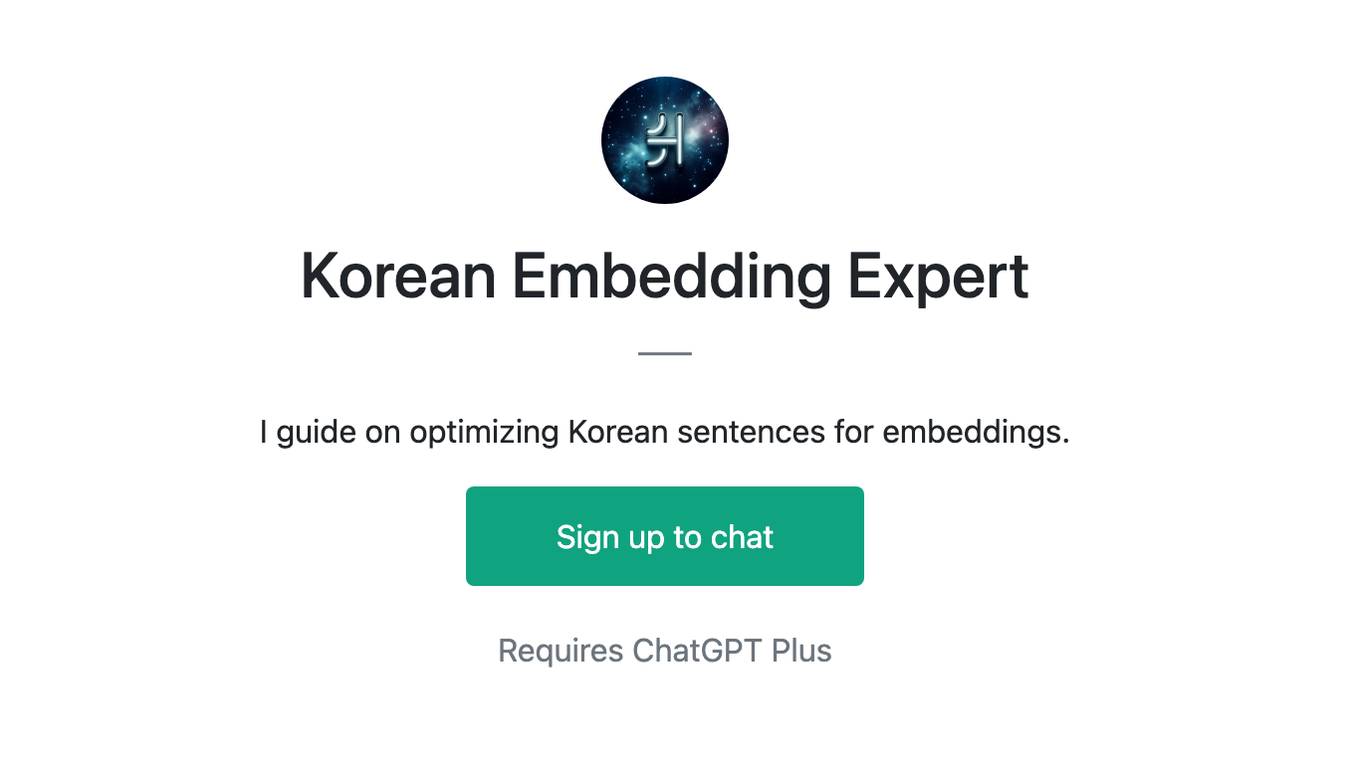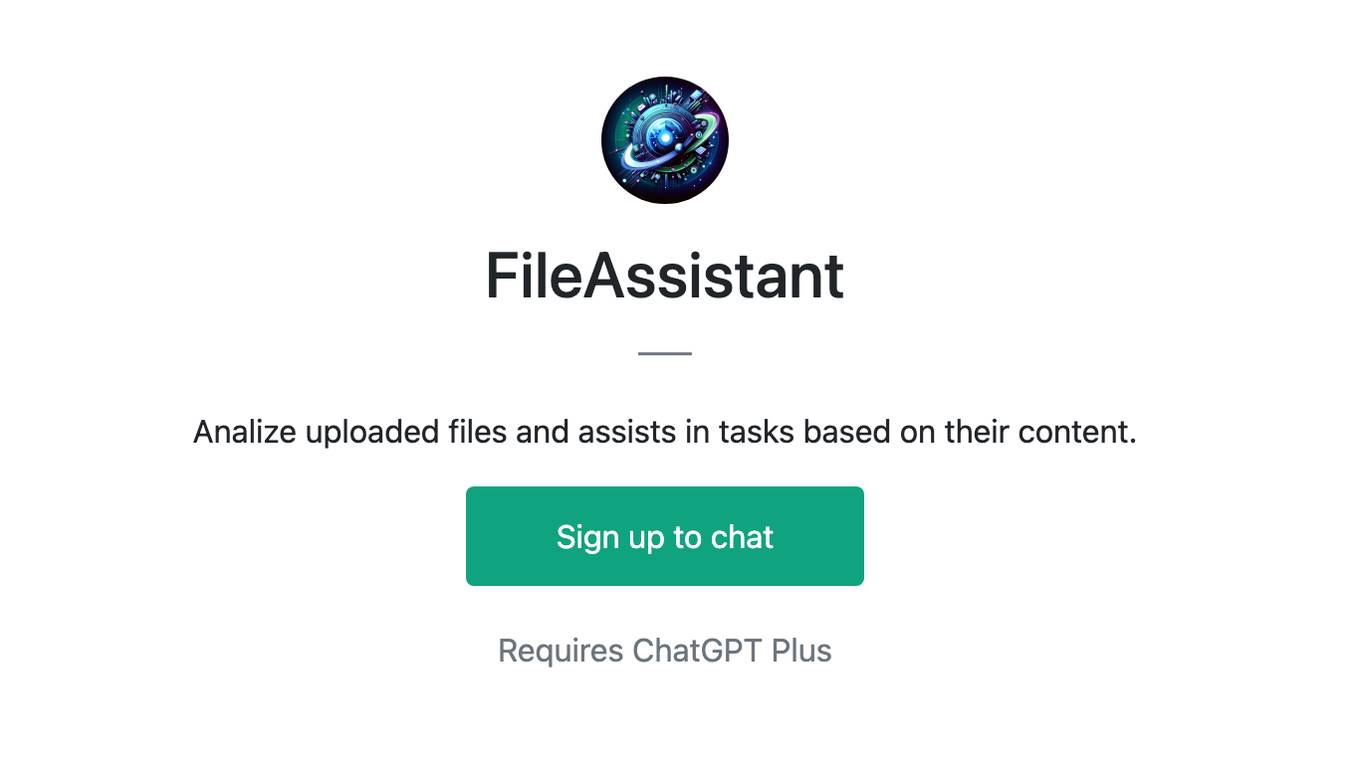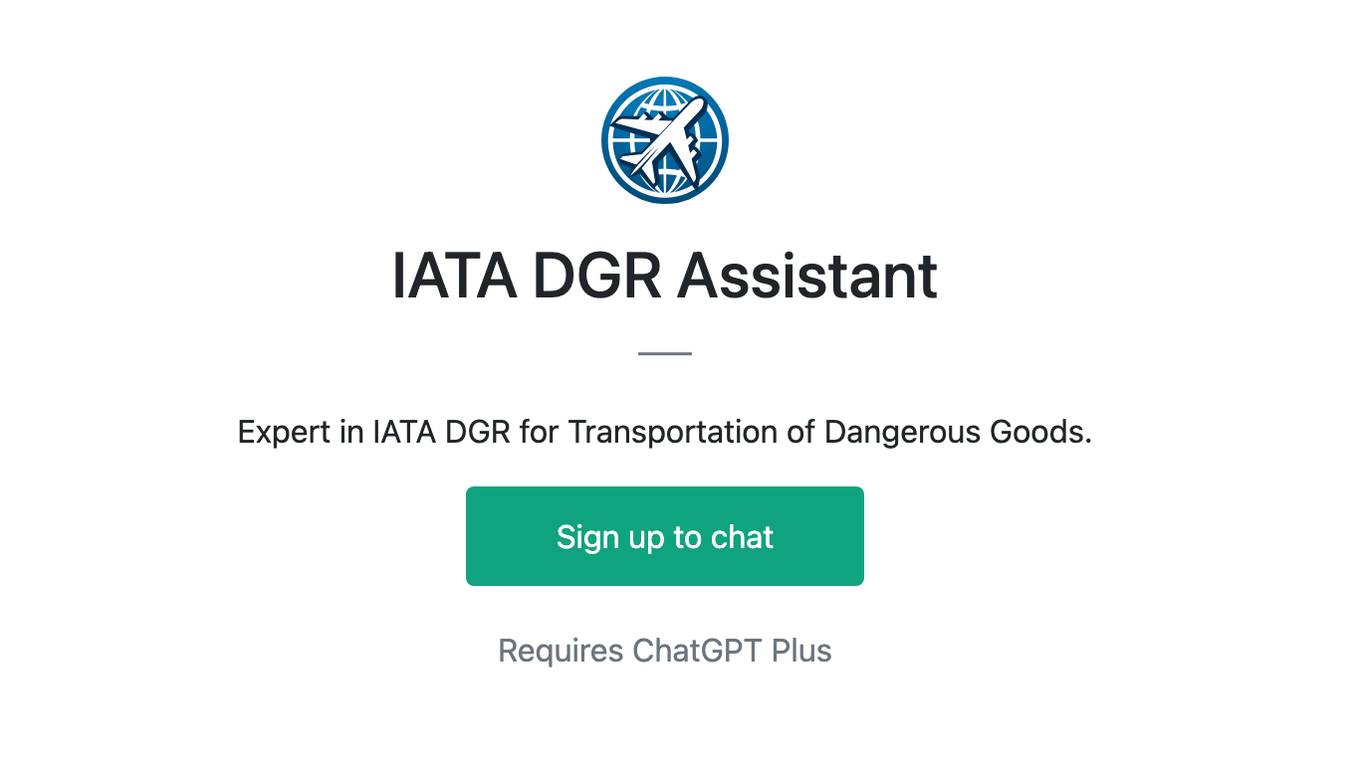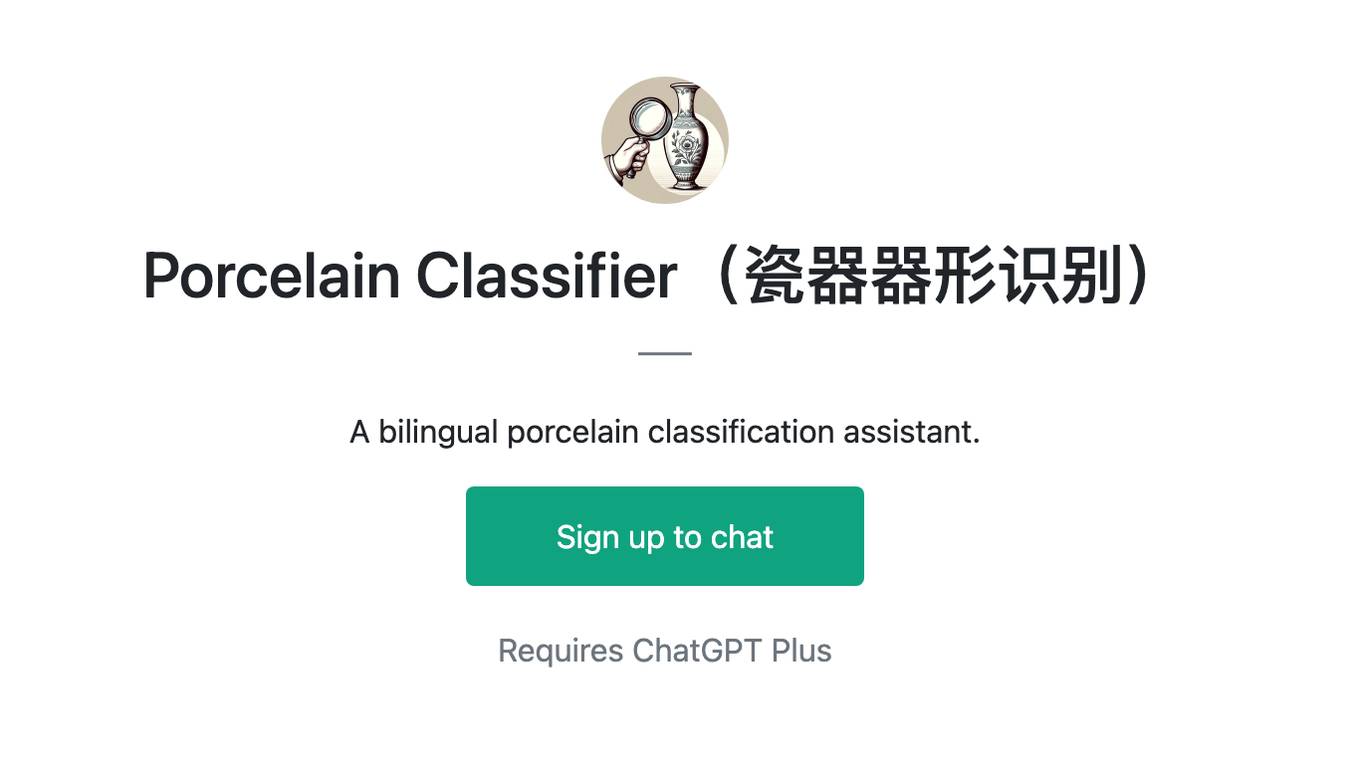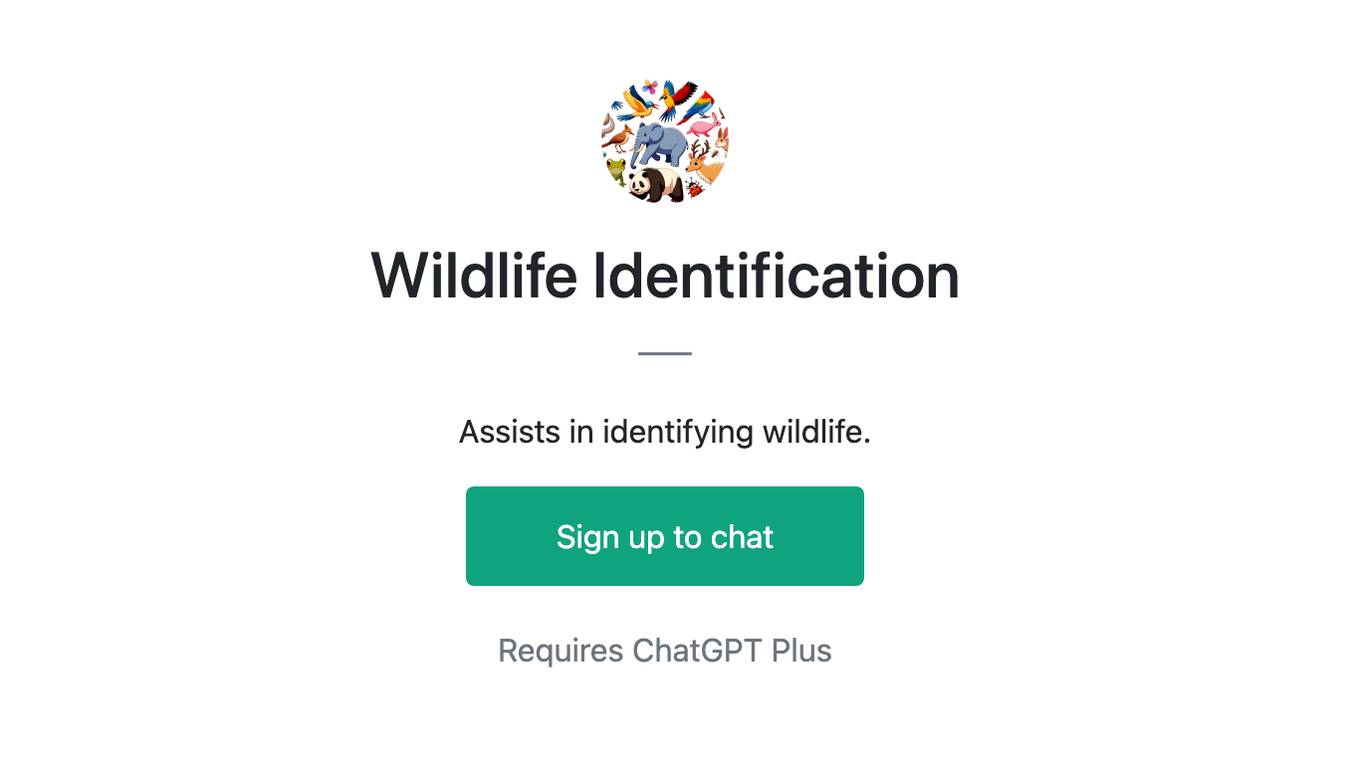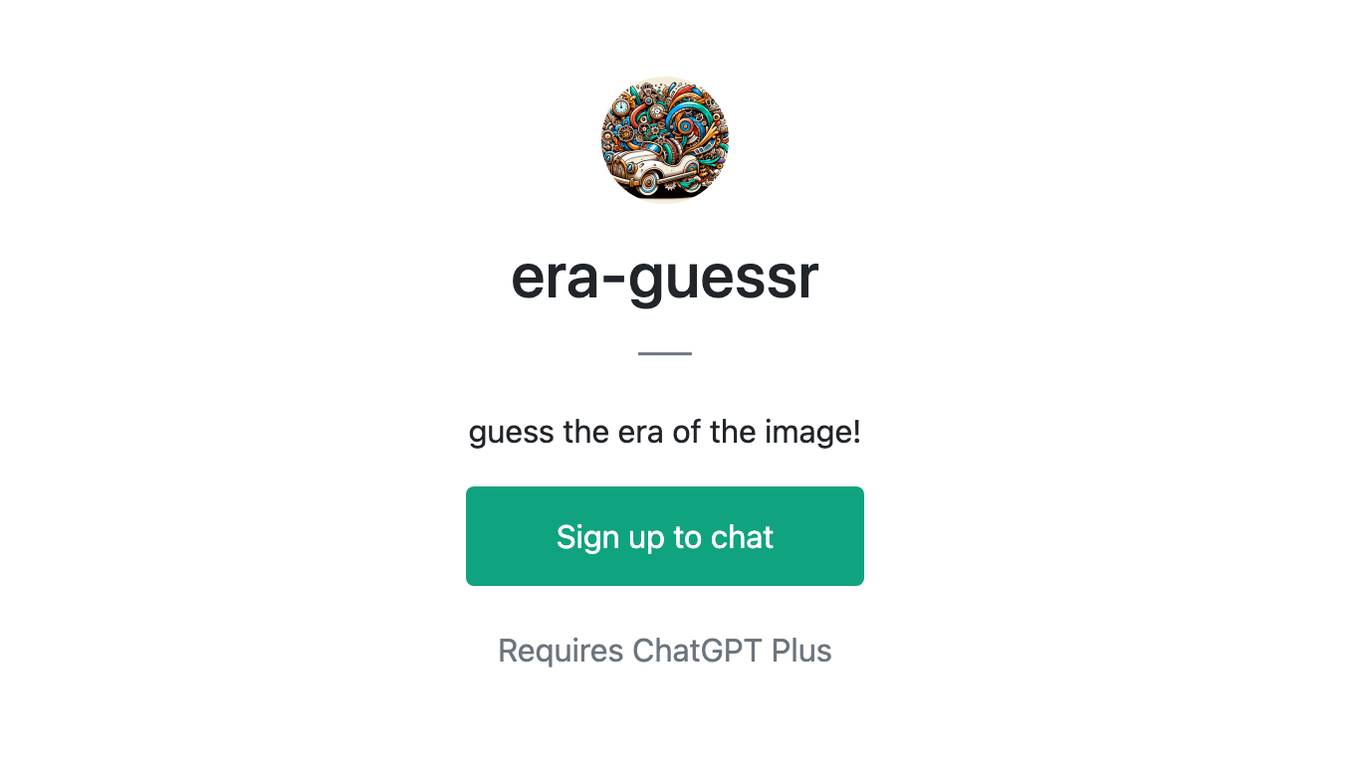Best AI tools for< Classify Text Data >
20 - AI tool Sites
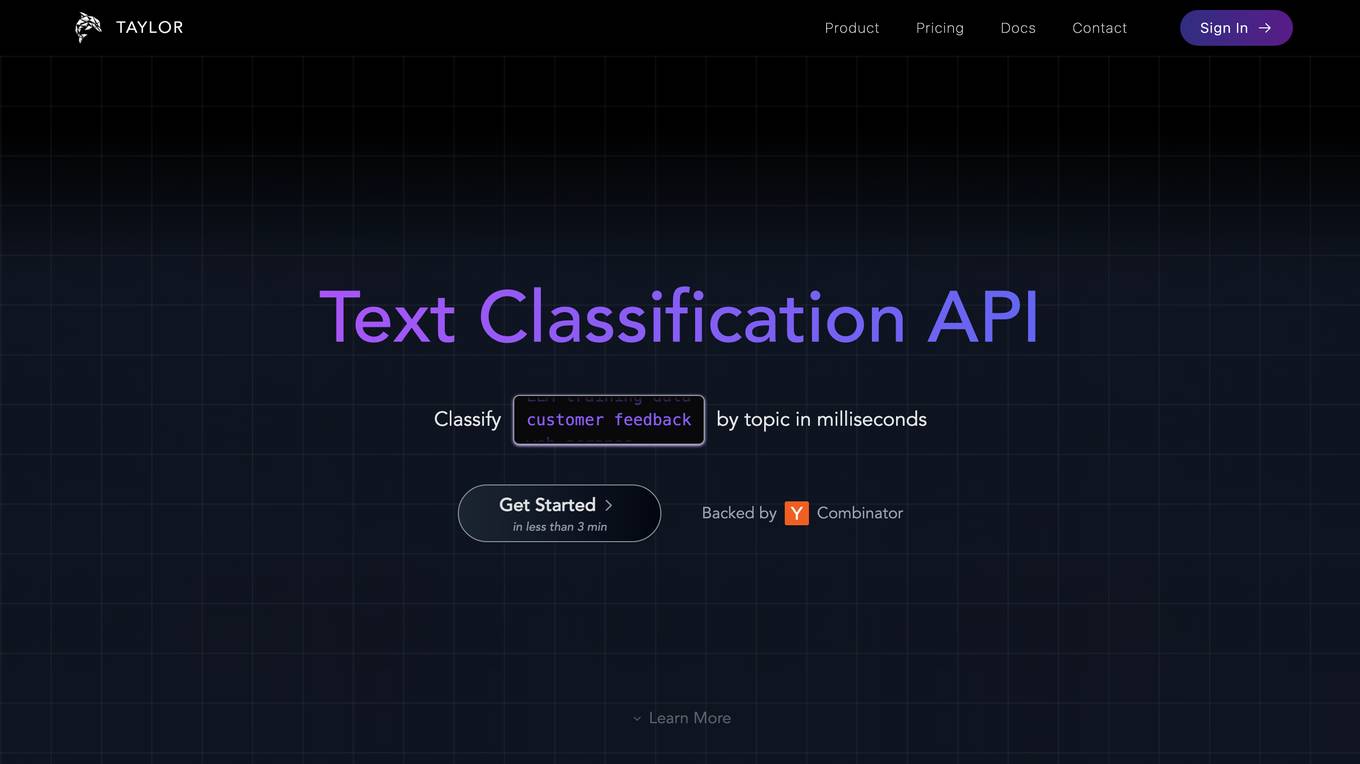
Taylor
Taylor is a deterministic AI tool that empowers Business & Engineering teams to enhance data at scale through bulk classification. It offers a Control Panel for Text Enrichment, enabling users to structure freeform text, enrich metadata, and customize enrichments according to their needs. Taylor's high impact, easy-to-use platform allows for total control over classification and extraction models, driving business impact from day one. With powerful integrations and the ability to integrate with various tools, Taylor simplifies the process of wrangling unstructured text data.
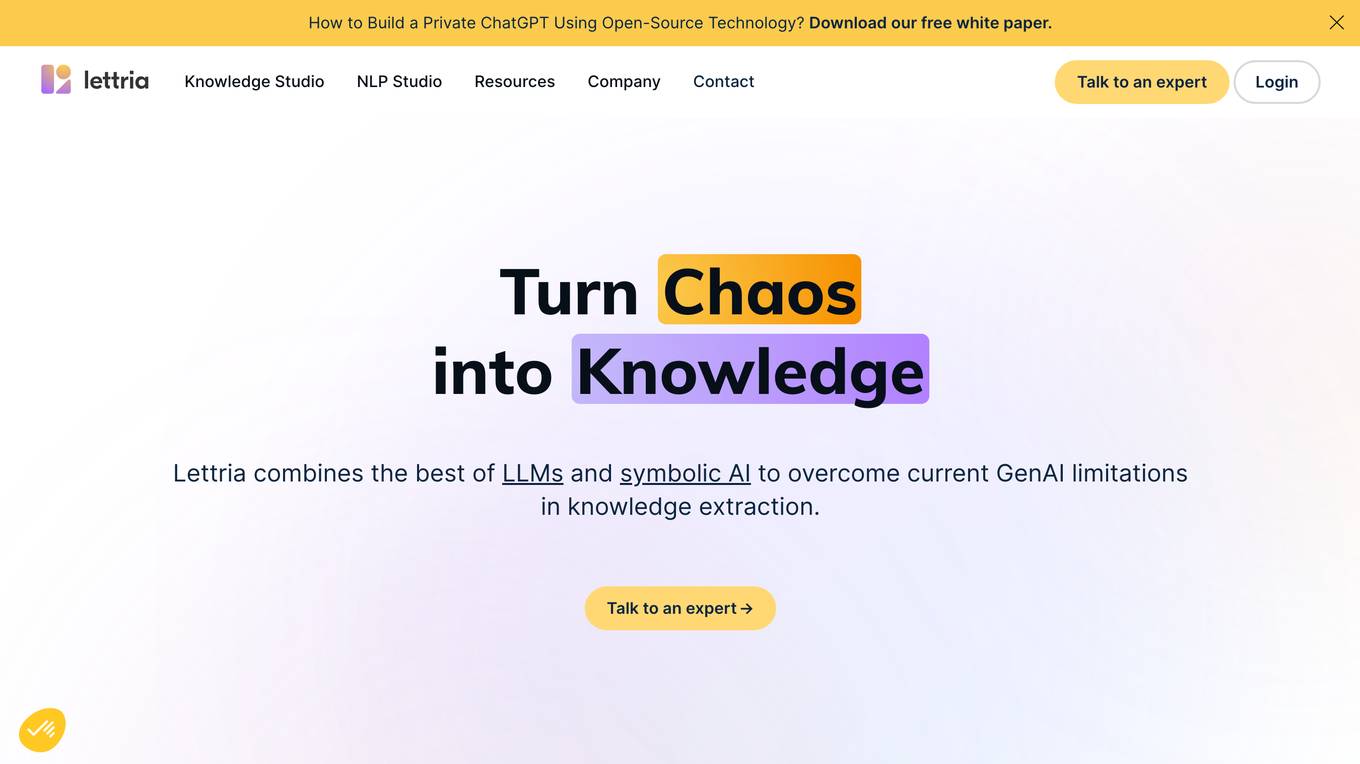
Lettria
Lettria is a no-code AI platform for text that helps users turn unstructured text data into structured knowledge. It combines the best of Large Language Models (LLMs) and symbolic AI to overcome current limitations in knowledge extraction. Lettria offers a suite of APIs for text cleaning, text mining, text classification, and prompt engineering. It also provides a Knowledge Studio for building knowledge graphs and private GPT models. Lettria is trusted by large organizations such as AP-HP and Leroy Merlin to improve their data analysis and decision-making processes.

FranzAI LLM Playground
FranzAI LLM Playground is an AI-powered tool that helps you extract, classify, and analyze unstructured text data. It leverages transformer models to provide accurate and meaningful results, enabling you to build data applications faster and more efficiently. With FranzAI, you can accelerate product and content classification, enhance data interpretation, and advance data extraction processes, unlocking key insights from your textual data.
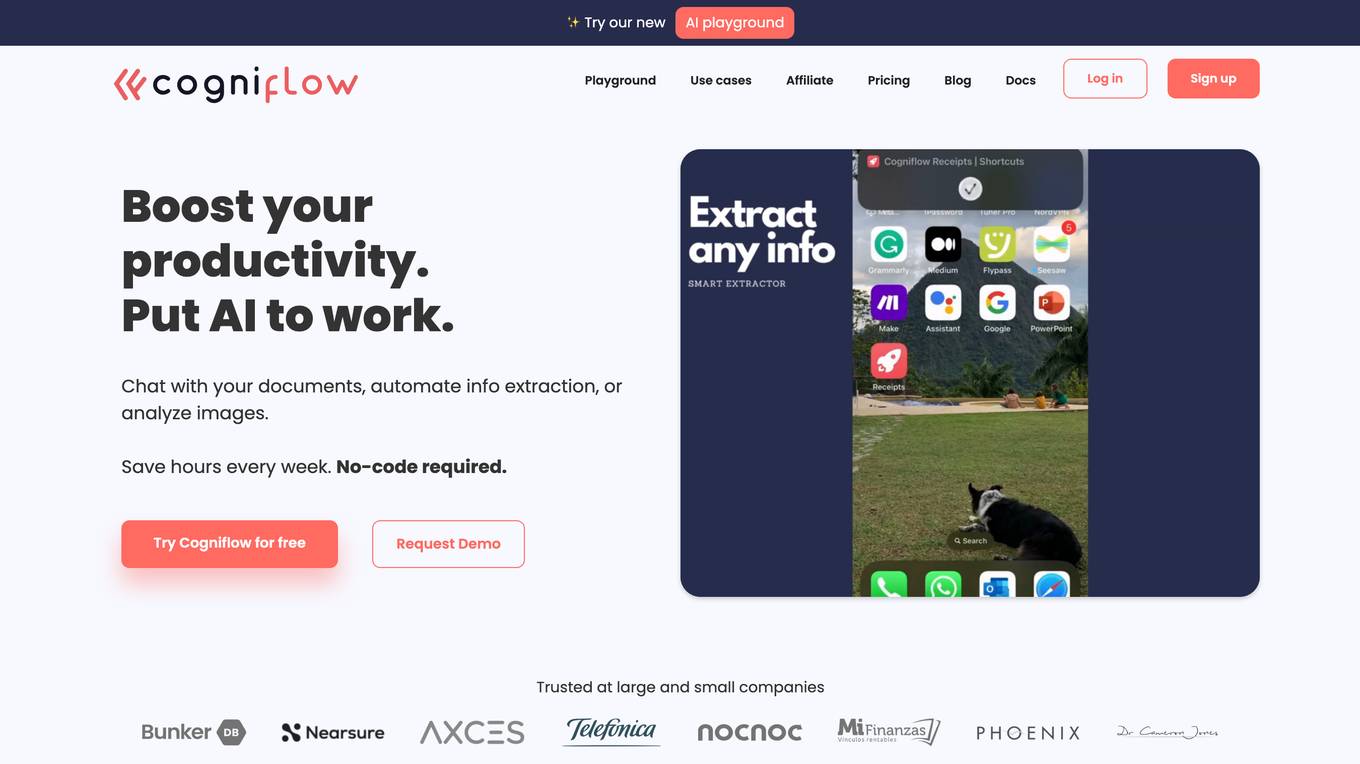
Cogniflow
Cogniflow is a no-code AI platform that allows users to build and deploy custom AI models without any coding experience. The platform provides a variety of pre-built AI models that can be used for a variety of tasks, including customer service, HR, operations, and more. Cogniflow also offers a variety of integrations with other applications, making it easy to connect your AI models to your existing workflow.
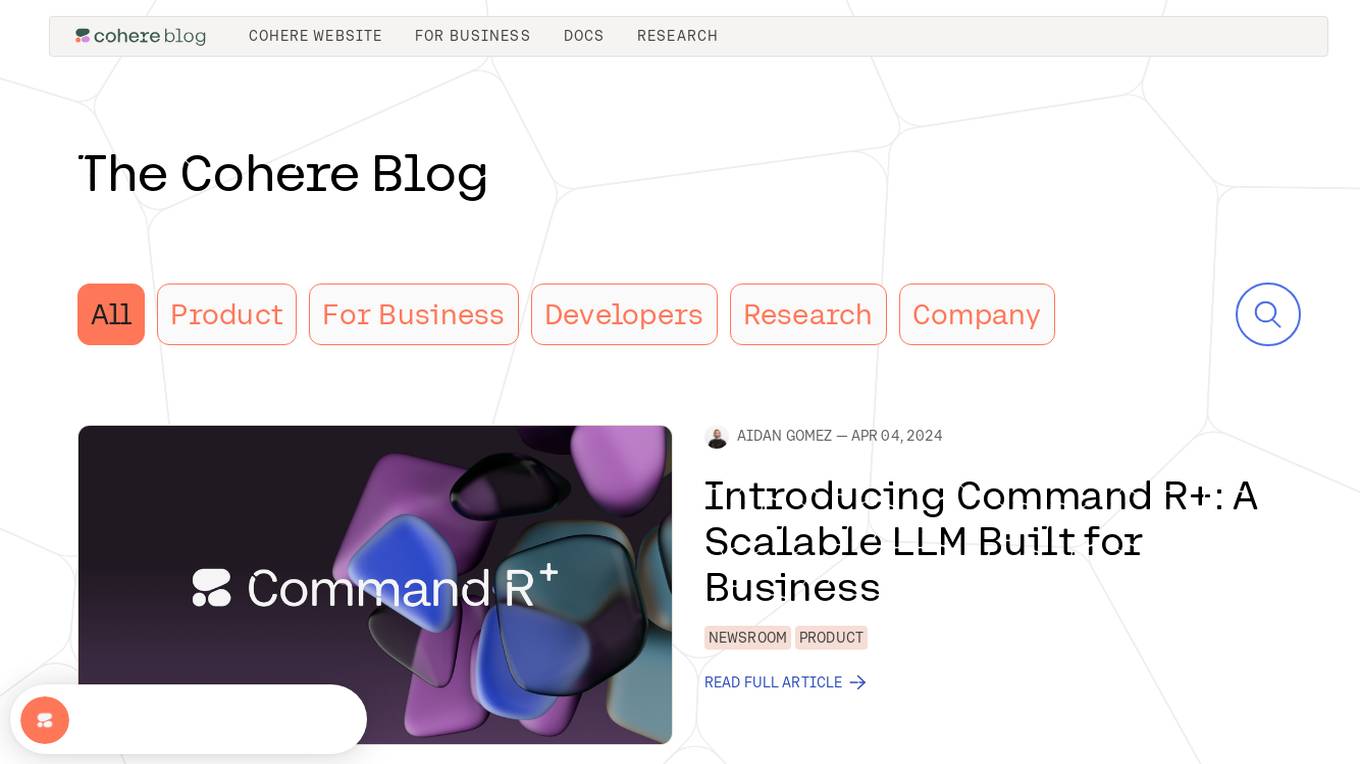
Cohere
Cohere is a leading provider of artificial intelligence (AI) tools and services. Our mission is to make AI accessible and useful to everyone, from individual developers to large enterprises. We offer a range of AI tools and services, including natural language processing, computer vision, and machine learning. Our tools are used by businesses of all sizes to improve customer service, automate tasks, and gain insights from data.
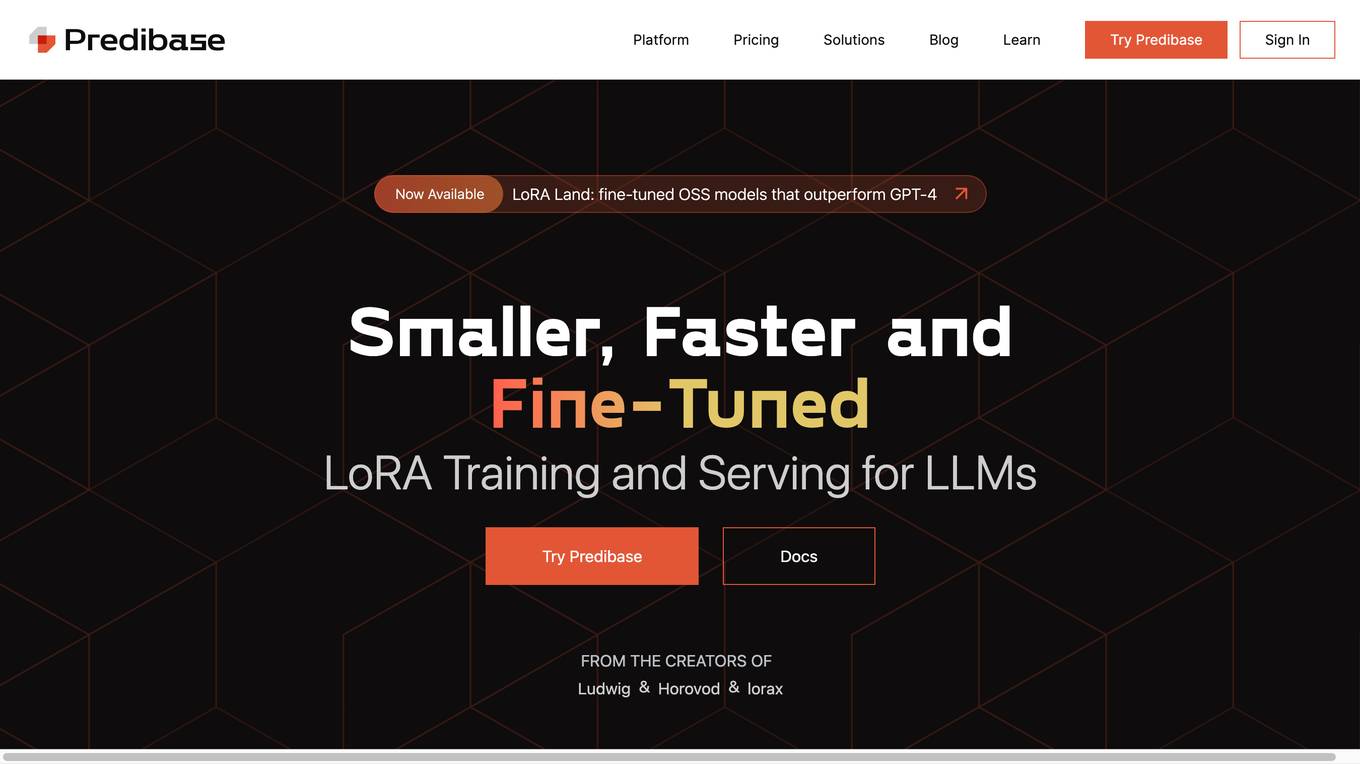
Predibase
Predibase is a platform for fine-tuning and serving Large Language Models (LLMs). It provides a cost-effective and efficient way to train and deploy LLMs for a variety of tasks, including classification, information extraction, customer sentiment analysis, customer support, code generation, and named entity recognition. Predibase is built on proven open-source technology, including LoRAX, Ludwig, and Horovod.
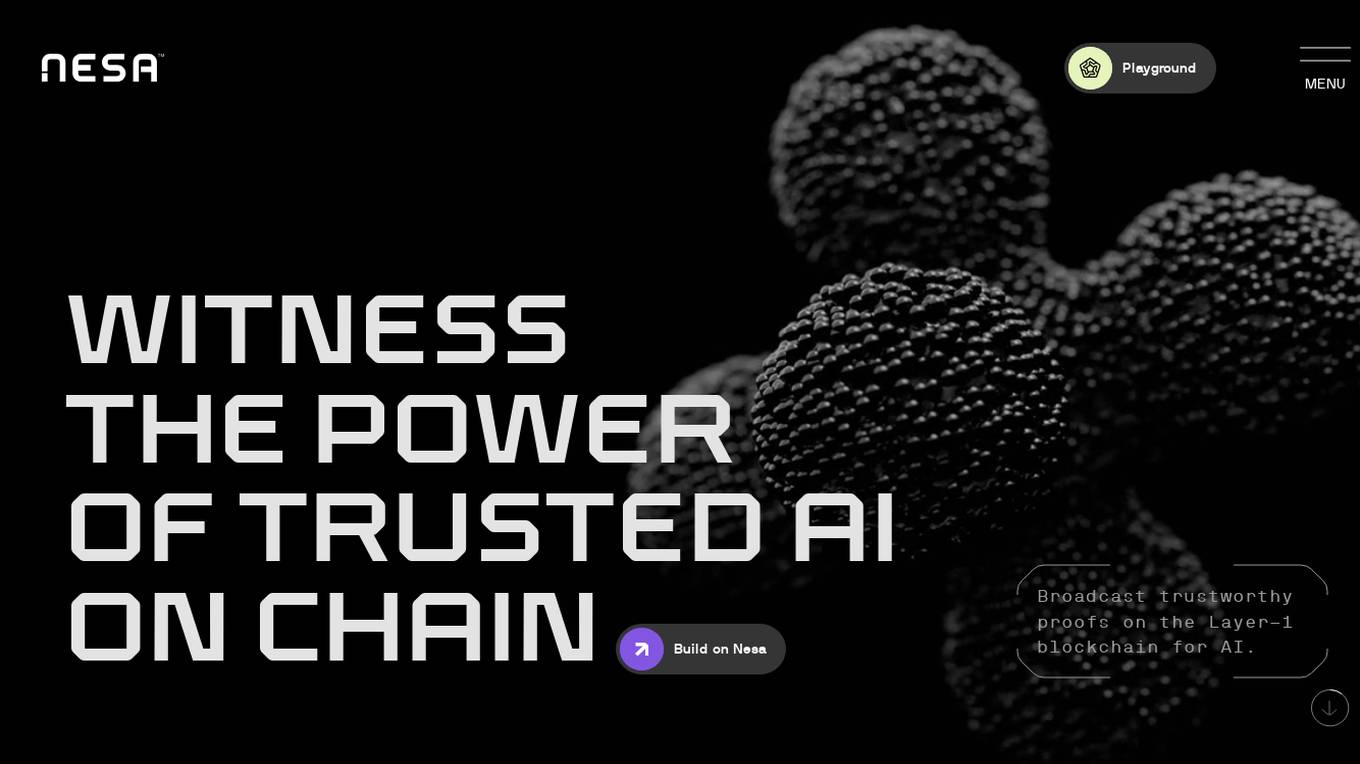
Nesa Playground
Nesa is a global blockchain network that brings AI on-chain, allowing applications and protocols to seamlessly integrate with AI. It offers secure execution for critical inference, a private AI network, and a global AI model repository. Nesa supports various AI models for tasks like text classification, content summarization, image generation, language translation, and more. The platform is backed by a team with extensive experience in AI and deep learning, with numerous awards and recognitions in the field.
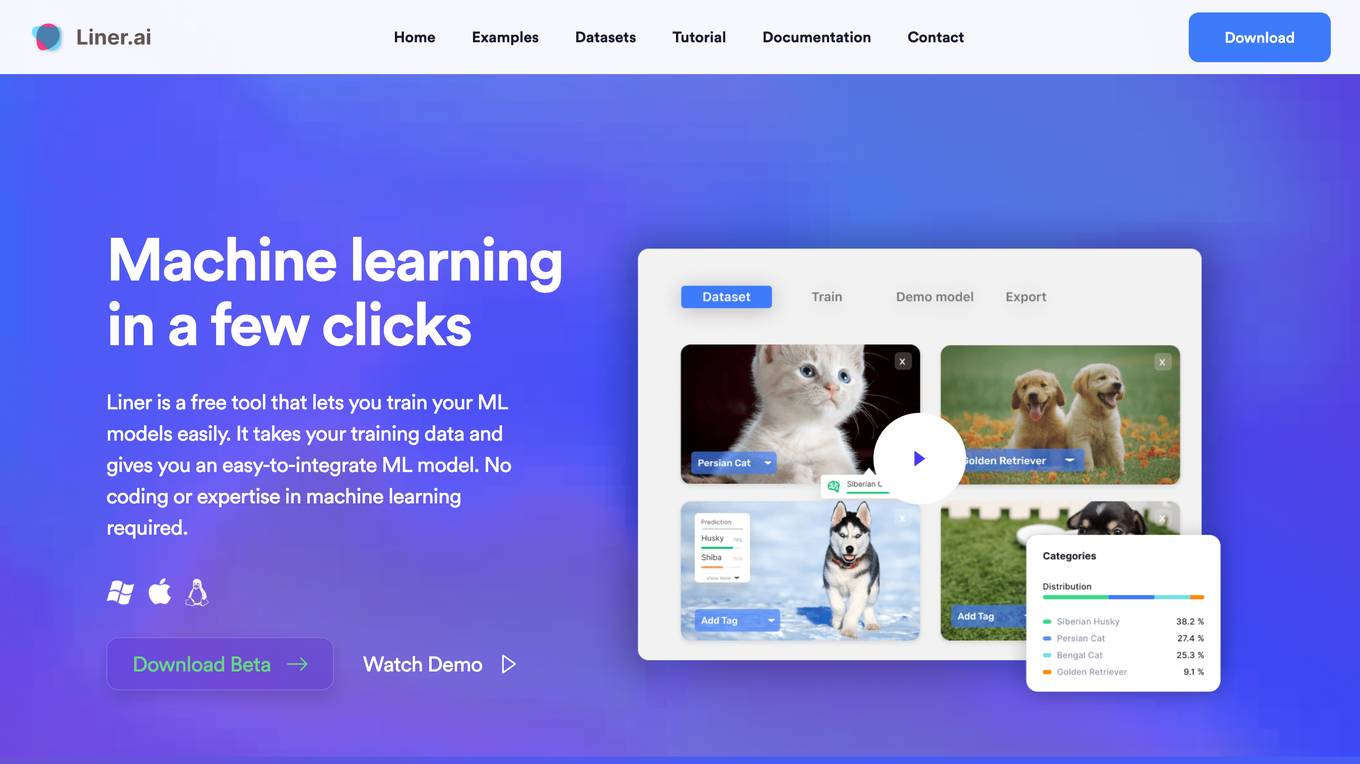
Liner.ai
Liner is a free and easy-to-use tool that allows users to train machine learning models without writing any code. It provides a user-friendly interface that guides users through the process of importing data, selecting a model, and training the model. Liner also offers a variety of pre-trained models that can be used for common tasks such as image classification, text classification, and object detection. With Liner, users can quickly and easily create and deploy machine learning applications without the need for specialized knowledge or expertise.
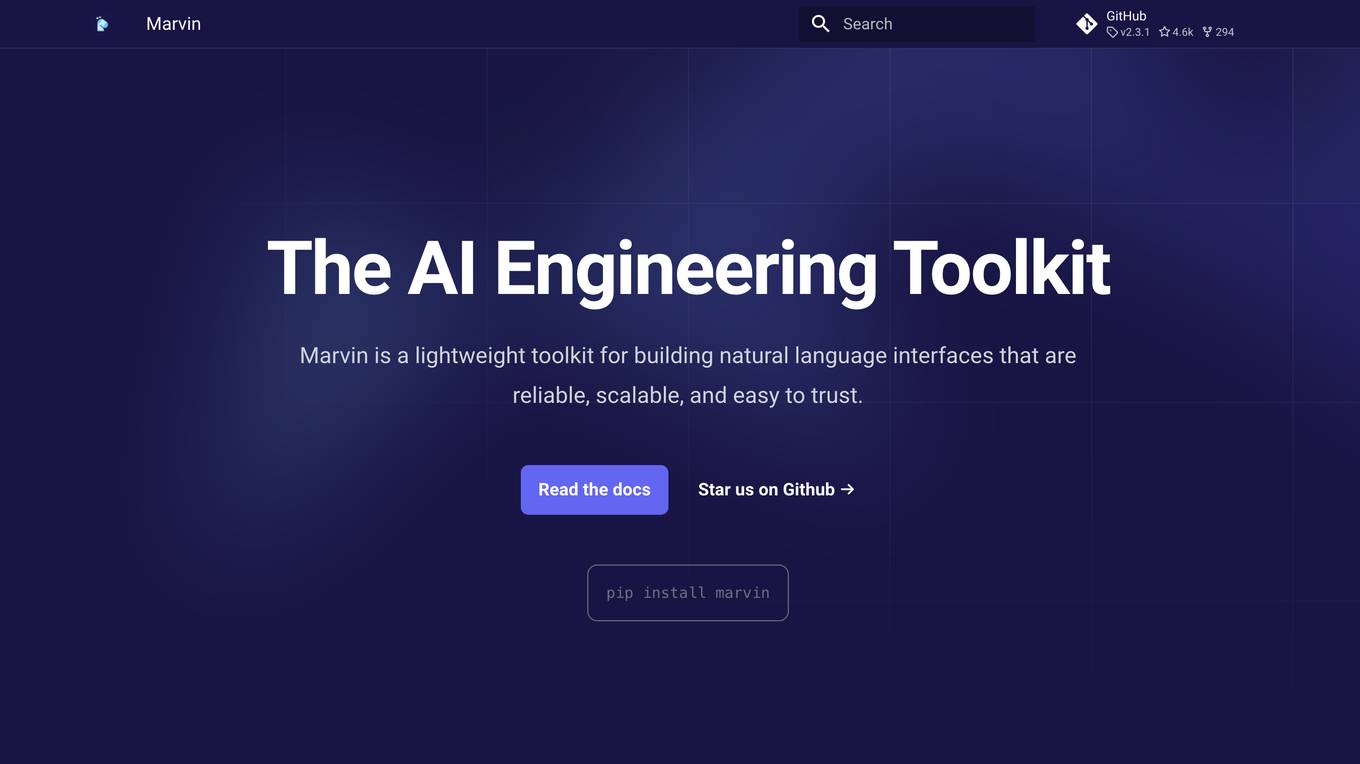
Marvin
Marvin is a lightweight toolkit for building natural language interfaces that are reliable, scalable, and easy to trust. It provides a variety of AI functions for text, images, audio, and video, as well as interactive tools and utilities. Marvin is designed to be easy to use and integrate, and it can be used to build a wide range of applications, from simple chatbots to complex AI-powered systems.
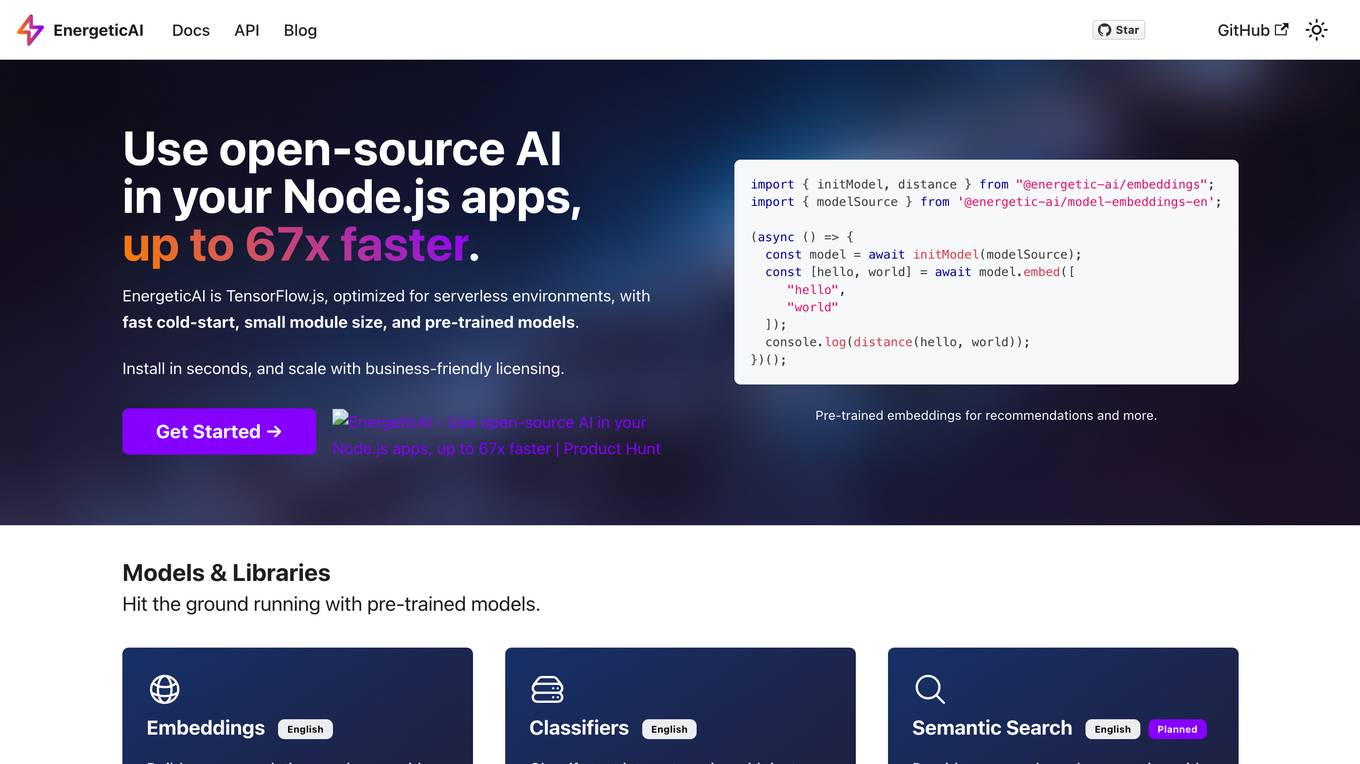
EnergeticAI
EnergeticAI is an open-source AI library that can be used in Node.js applications. It is optimized for serverless environments and provides fast cold-start, small module size, and pre-trained models. EnergeticAI can be used for a variety of tasks, including building recommendations, classifying text, and performing semantic search.

NLTK
NLTK (Natural Language Toolkit) is a leading platform for building Python programs to work with human language data. It provides easy-to-use interfaces to over 50 corpora and lexical resources such as WordNet, along with a suite of text processing libraries for classification, tokenization, stemming, tagging, parsing, and semantic reasoning, wrappers for industrial-strength NLP libraries, and an active discussion forum. Thanks to a hands-on guide introducing programming fundamentals alongside topics in computational linguistics, plus comprehensive API documentation, NLTK is suitable for linguists, engineers, students, educators, researchers, and industry users alike.
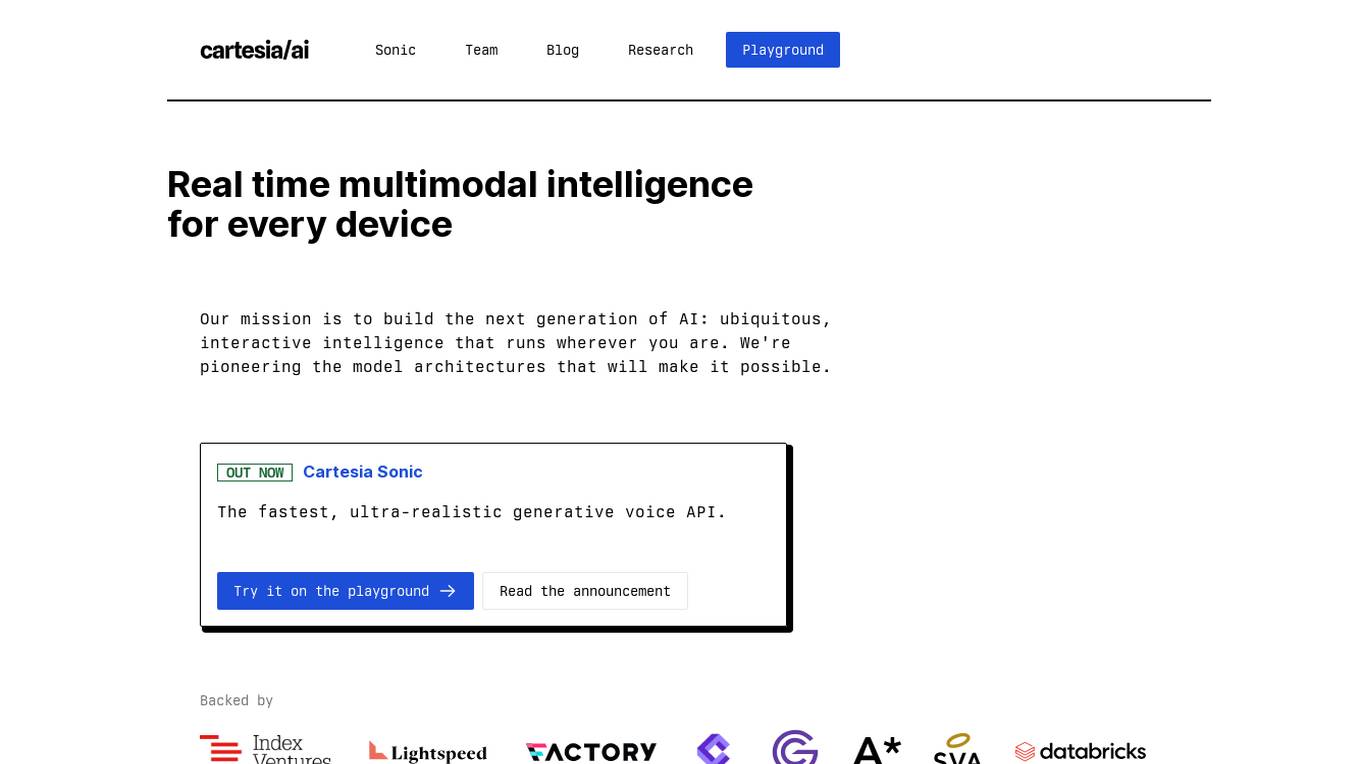
Cartesia Sonic Team Blog Research Playground
Cartesia Sonic Team Blog Research Playground is an AI application that offers real-time multimodal intelligence for every device. The application aims to build the next generation of AI by providing ubiquitous, interactive intelligence that can run on any device. It features the fastest, ultra-realistic generative voice API and is backed by research on simple linear attention language models and state-space models. The founding team, who met at the Stanford AI Lab, has invented State Space Models (SSMs) and scaled it up to achieve state-of-the-art results in various modalities such as text, audio, video, images, and time-series data.
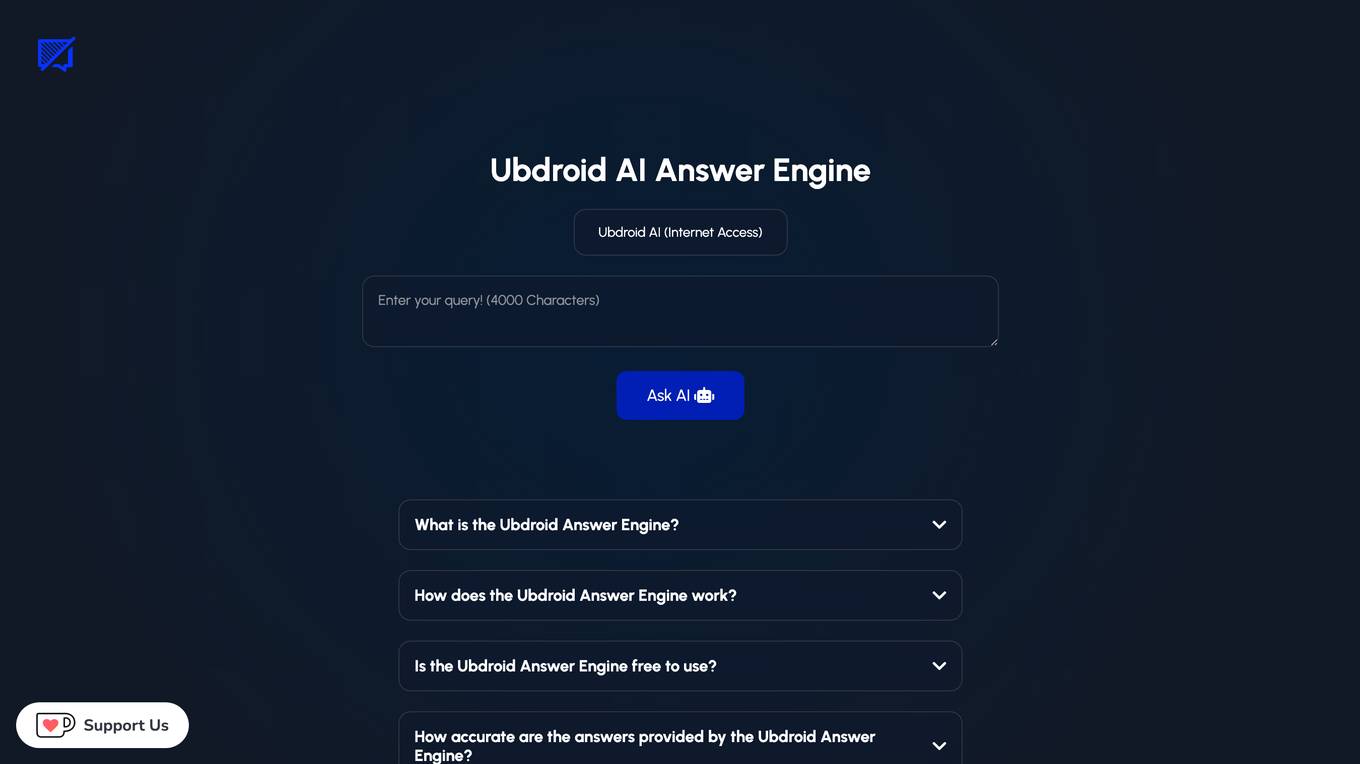
Ubdroid AI Answer Engine
Ubdroid AI Answer Engine is an AI-powered tool that utilizes various open-source LLMs to provide answers to user queries. It works by processing user queries and fetching relevant information from these LLMs. The accuracy of the answers depends on the quality and relevance of the data provided by the LLMs. The free version of the tool has a request limit of 10 requests per minute. If a model is not working, users can select another model.
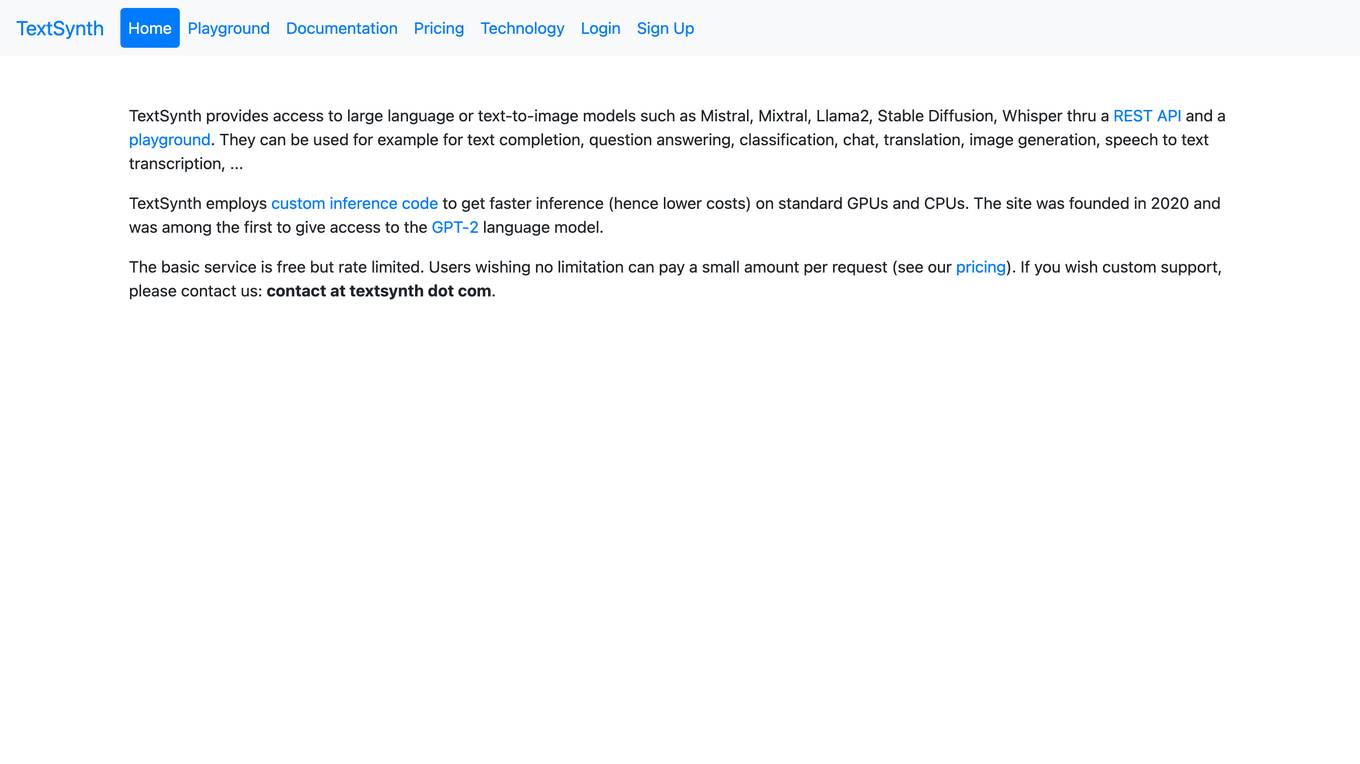
TextSynth
TextSynth is an AI tool that provides access to large language models such as Mistral, Llama, Stable Diffusion, Whisper for text-to-image, text-to-speech, and speech-to-text capabilities via a REST API and a playground. It employs custom inference code for faster inference on standard GPUs and CPUs. Founded in 2020, TextSynth was among the first to offer access to the GPT-2 language model. The service is free with rate limitations, but users can opt for unlimited access by paying a small fee per request. All servers are located in France.
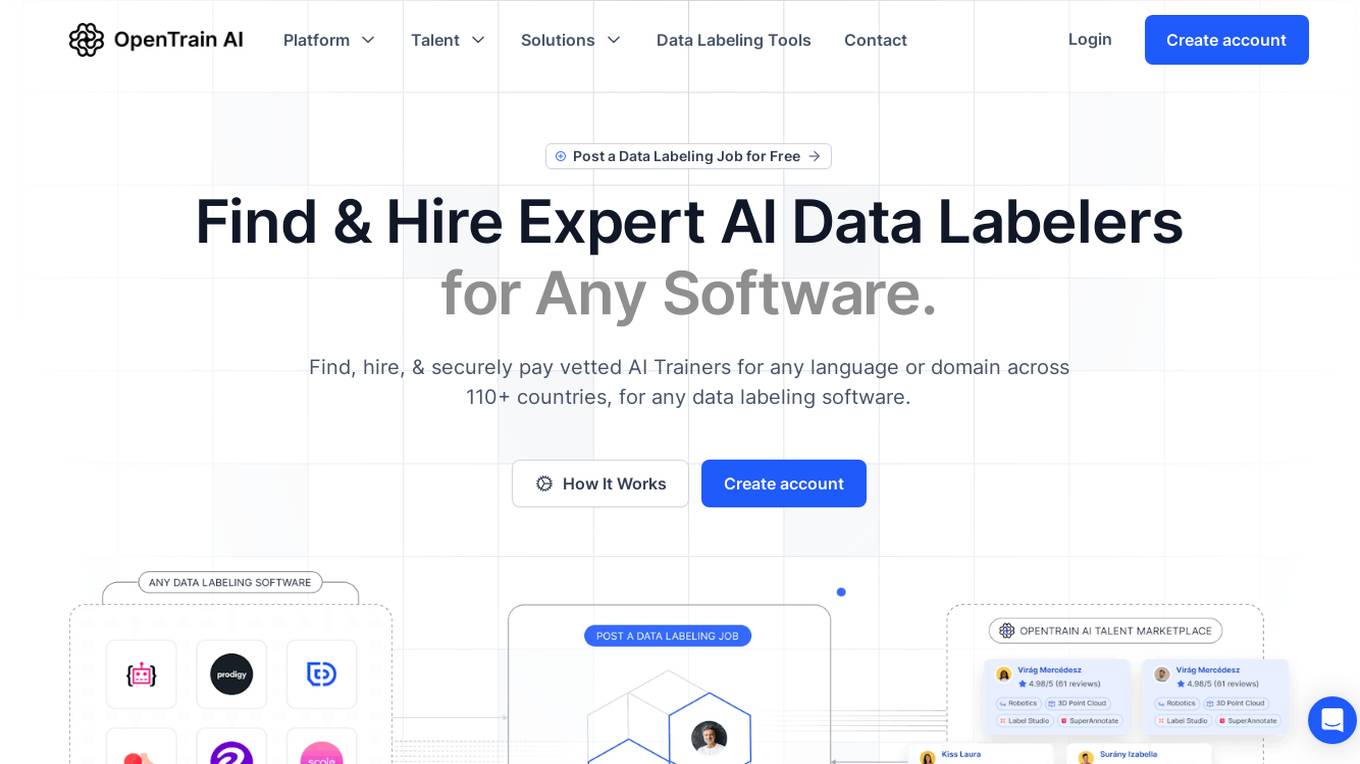
OpenTrain AI
OpenTrain AI is a data labeling marketplace that leverages artificial intelligence to streamline the process of labeling data for machine learning models. It provides a platform where users can crowdsource data labeling tasks to a global community of annotators, ensuring high-quality labeled datasets for training AI algorithms. With advanced AI algorithms and human-in-the-loop validation, OpenTrain AI offers efficient and accurate data labeling services for various industries such as autonomous vehicles, healthcare, and natural language processing.
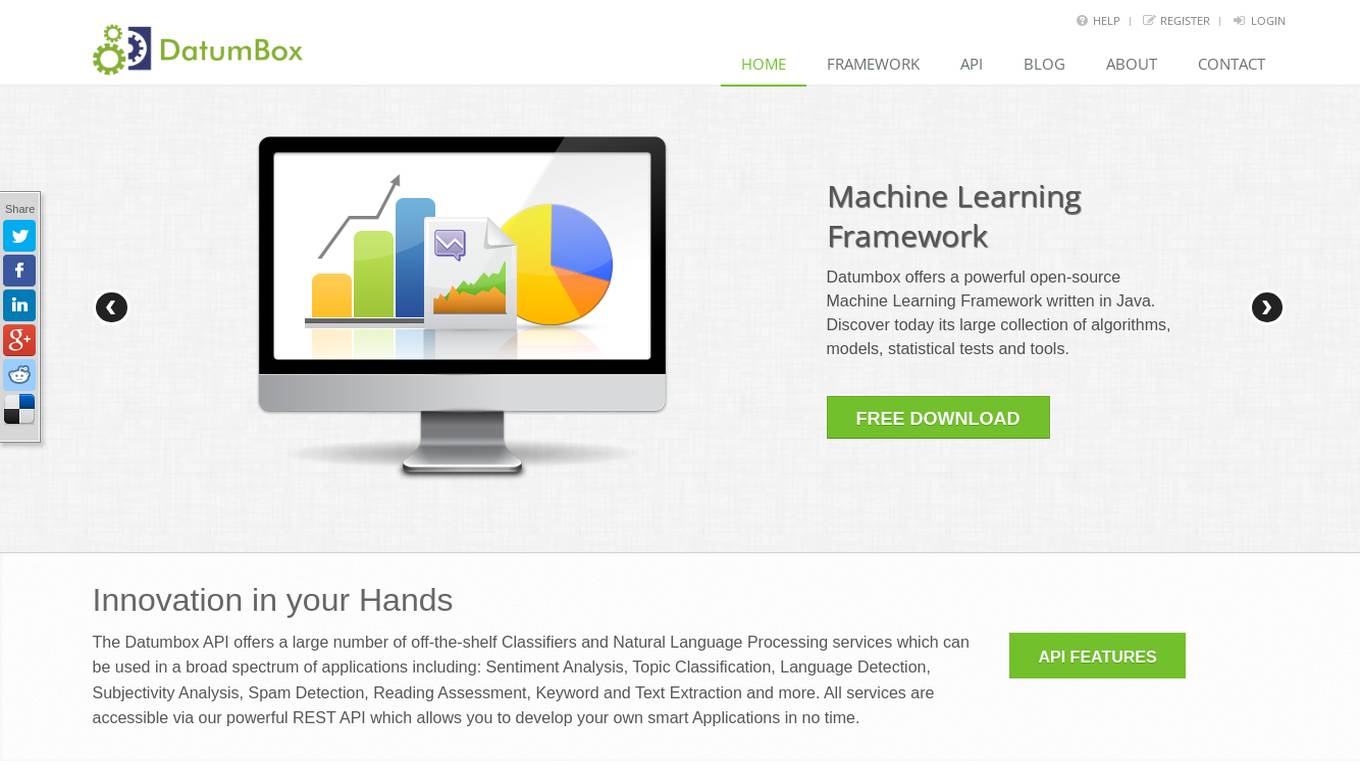
Datumbox
Datumbox is a machine learning platform that offers a powerful open-source Machine Learning Framework written in Java. It provides a large collection of algorithms, models, statistical tests, and tools to power up intelligent applications. The platform enables developers to build smart software and services quickly using its REST Machine Learning API. Datumbox API offers off-the-shelf Classifiers and Natural Language Processing services for applications like Sentiment Analysis, Topic Classification, Language Detection, and more. It simplifies the process of designing and training Machine Learning models, making it easy for developers to create innovative applications.
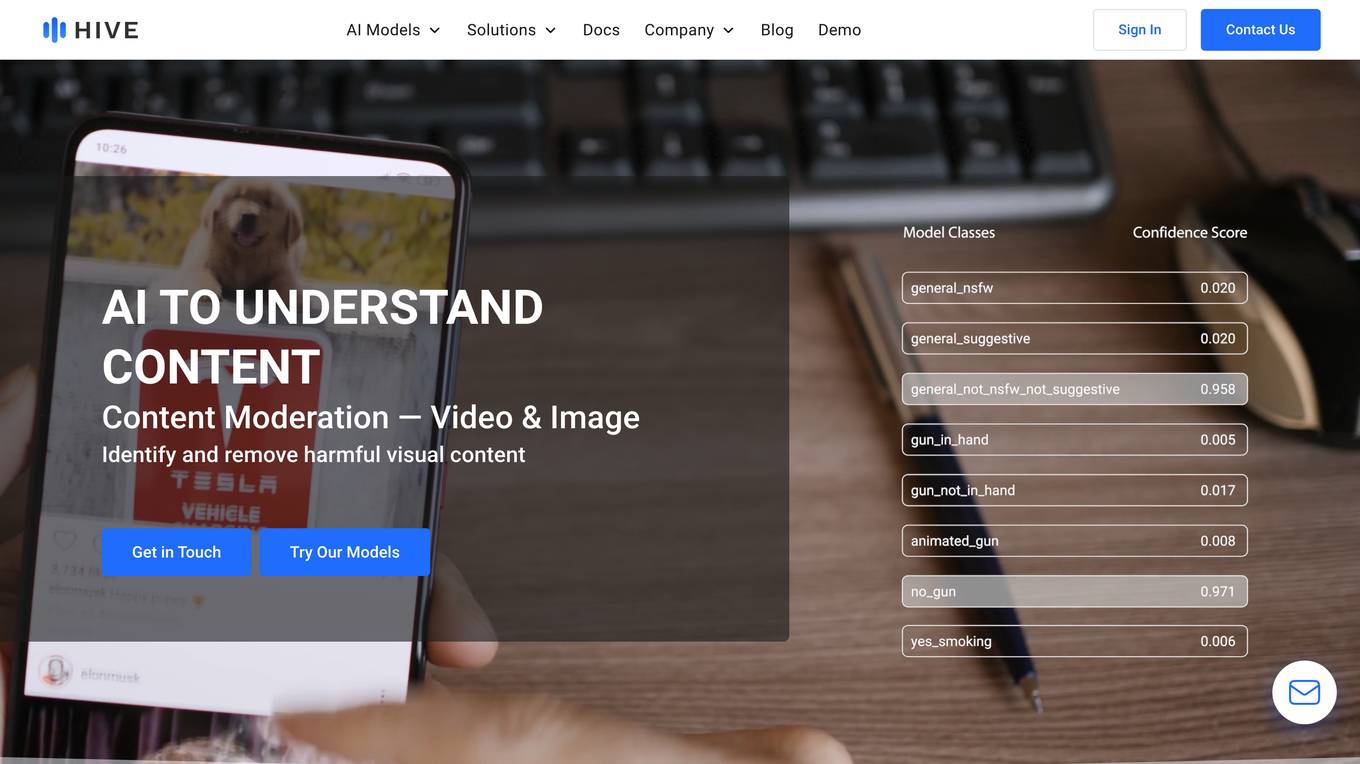
Hive AI
Hive AI provides a suite of AI models and solutions for understanding, searching, and generating content. Their AI models can be integrated into applications via APIs, enabling developers to add advanced content understanding capabilities to their products. Hive AI's solutions are used by businesses in various industries, including digital platforms, sports, media, and marketing, to streamline content moderation, automate image search and authentication, measure sponsorships, and monetize ad inventory.
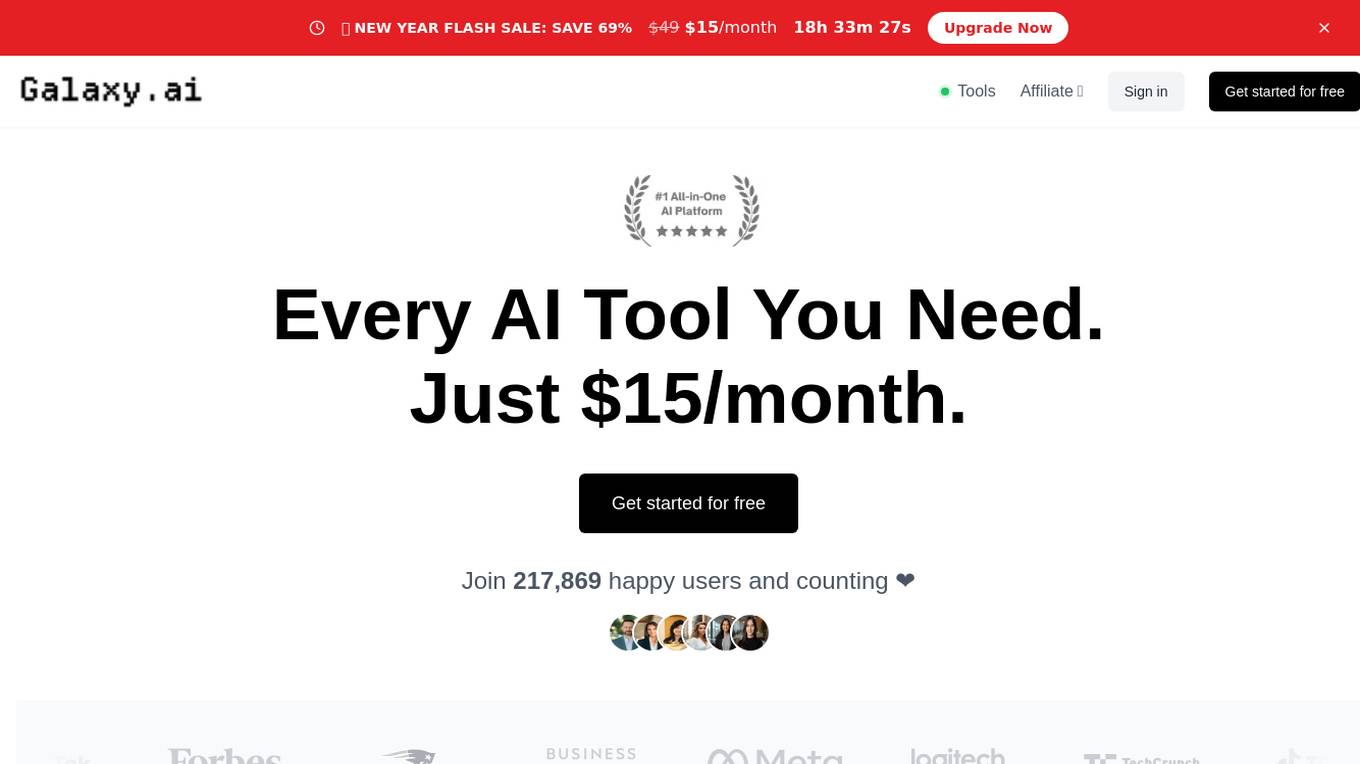
Galaxy.ai
Galaxy.ai is an all-in-one AI platform that offers a wide range of AI tools and applications to streamline and enhance various business processes. From data analysis to predictive modeling, Galaxy.ai provides advanced AI solutions to help businesses make data-driven decisions and improve efficiency. With its user-friendly interface and powerful algorithms, Galaxy.ai is designed to cater to the needs of both small businesses and large enterprises, making AI technology accessible and easy to implement.

CategorAIze.io
CategorAIze.io is an AI-powered tool that helps users categorize data effortlessly using the latest AI technologies. Users can define custom categories, upload data items, and let the cutting-edge LLM AI automatically assign entries based on their content without the need for pretraining. The tool supports multi-level hierarchies, text and image-based categorization, and offers pay-as-you-go pricing options. Additionally, users can access the tool via browser, API, and plugins for a seamless experience.

Supertools
Supertools is a website that provides a curated directory of the best AI tools, organized and categorized in one spot. Users can browse through the latest AI tools, filter by category, and read detailed descriptions of each tool. Supertools also offers a newsletter that delivers the latest AI tools directly to users' inboxes.
2 - Open Source AI Tools
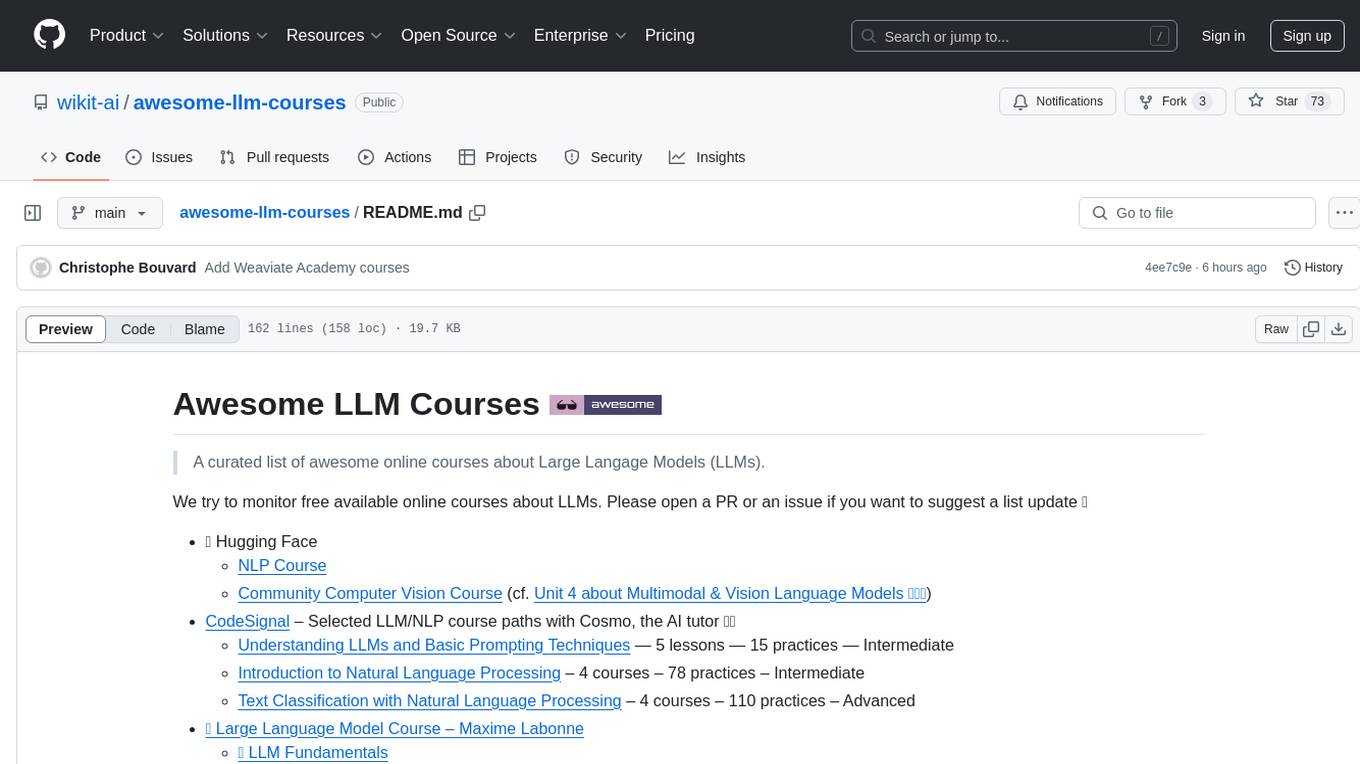
awesome-llm-courses
Awesome LLM Courses is a curated list of online courses focused on Large Language Models (LLMs). The repository aims to provide a comprehensive collection of free available courses covering various aspects of LLMs, including fundamentals, engineering, and applications. The courses are suitable for individuals interested in natural language processing, AI development, and machine learning. The list includes courses from reputable platforms such as Hugging Face, Udacity, DeepLearning.AI, Cohere, DataCamp, and more, offering a wide range of topics from pretraining LLMs to building AI applications with LLMs. Whether you are a beginner looking to understand the basics of LLMs or an intermediate developer interested in advanced topics like prompt engineering and generative AI, this repository has something for everyone.
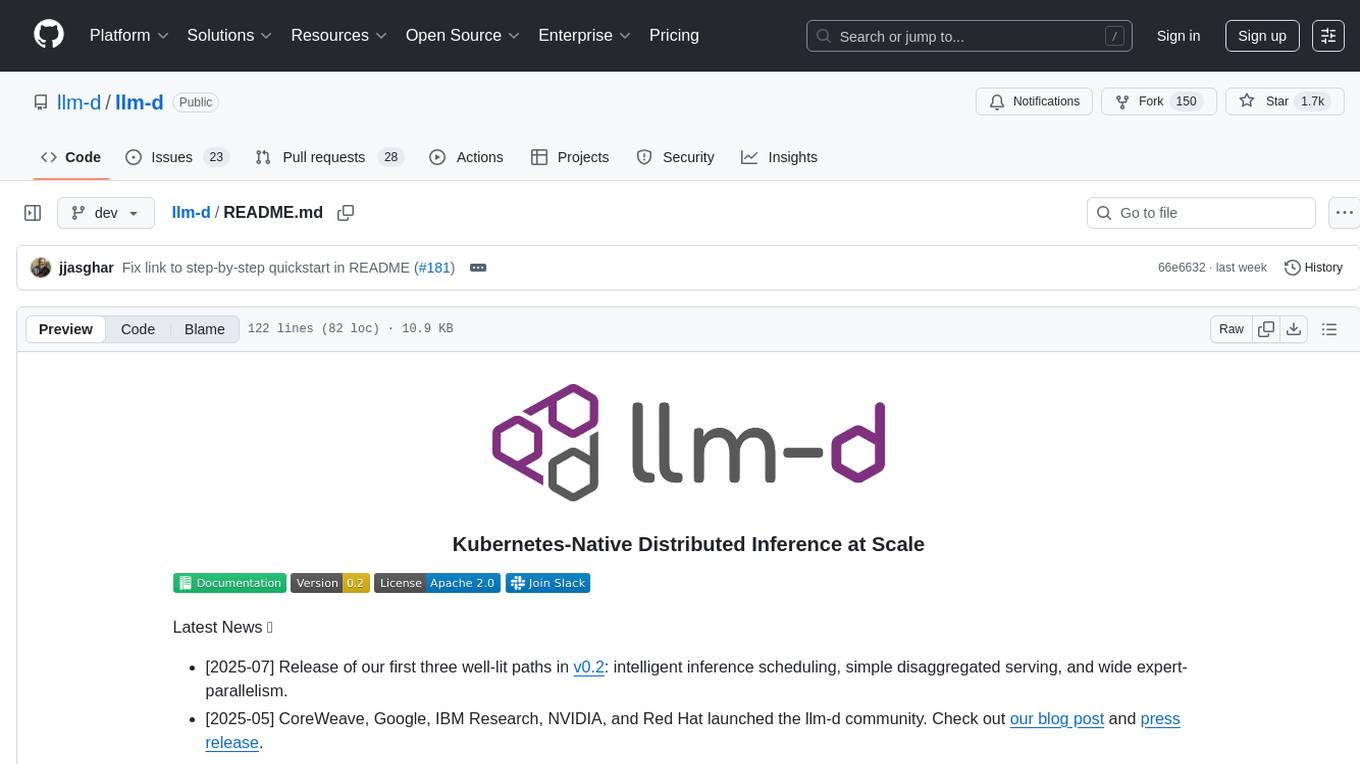
llm-d
LLM-D is a machine learning model for sentiment analysis. It is designed to classify text data into positive, negative, or neutral sentiment categories. The model is trained on a large dataset of labeled text samples and uses natural language processing techniques to analyze and predict sentiment in new text inputs. LLM-D is a powerful tool for businesses and researchers looking to understand customer feedback, social media sentiment, and other text data sources. It can be easily integrated into existing applications or used as a standalone tool for sentiment analysis tasks.
20 - OpenAI Gpts
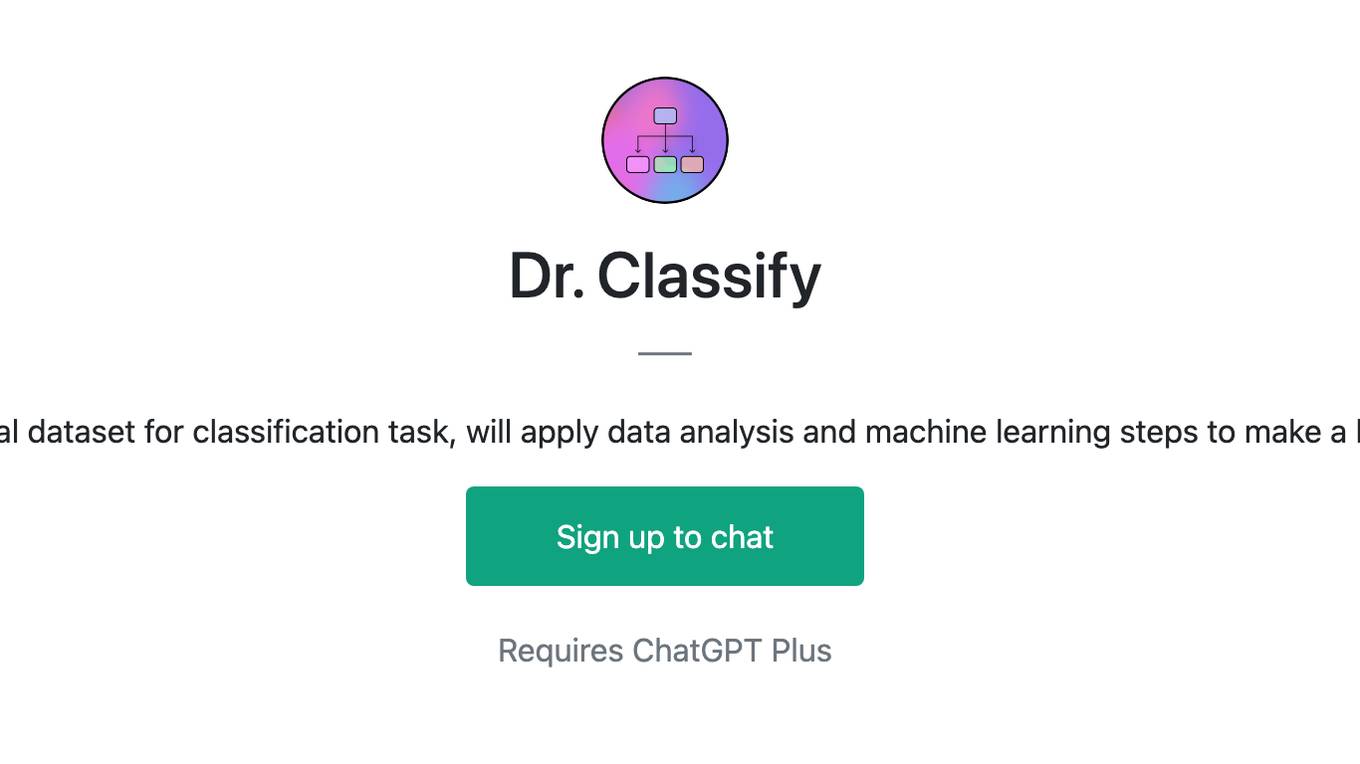
Dr. Classify
Just upload a numerical dataset for classification task, will apply data analysis and machine learning steps to make a best model possible.
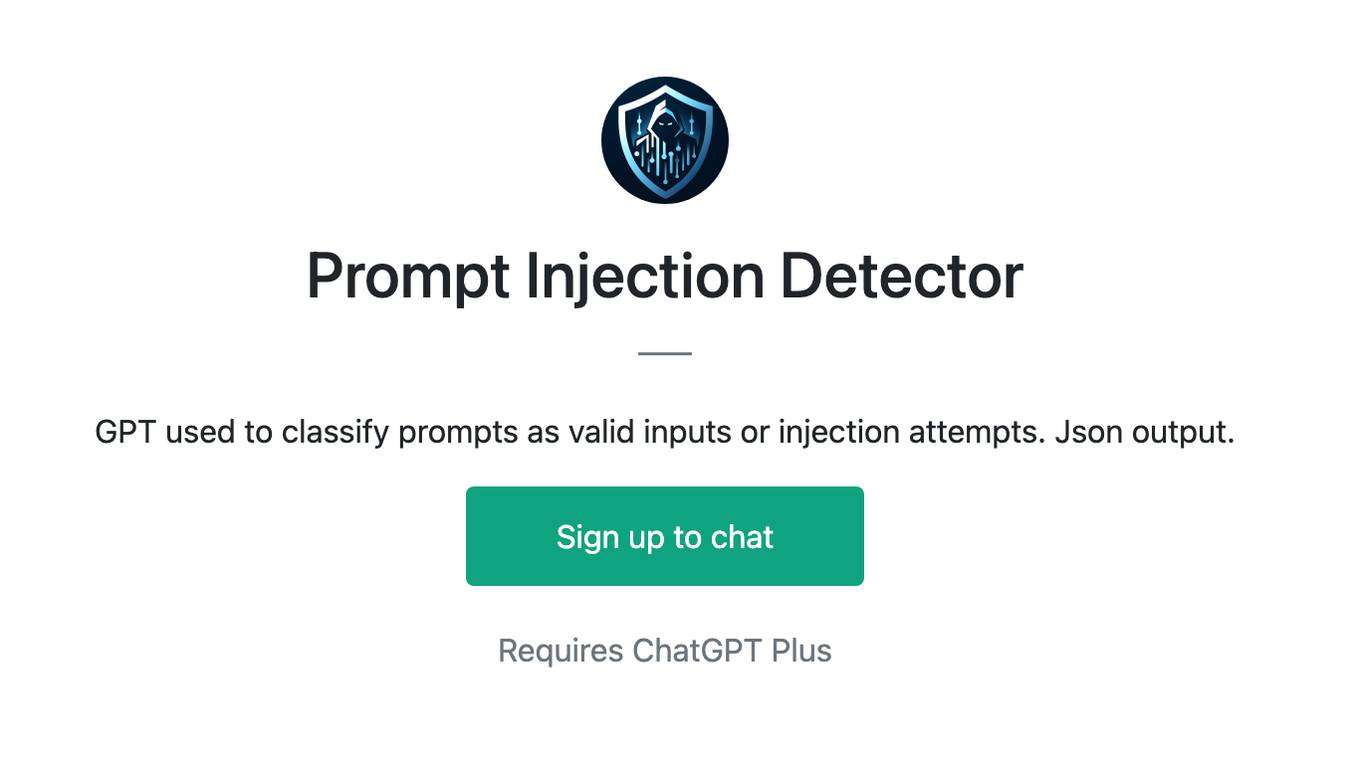
Prompt Injection Detector
GPT used to classify prompts as valid inputs or injection attempts. Json output.
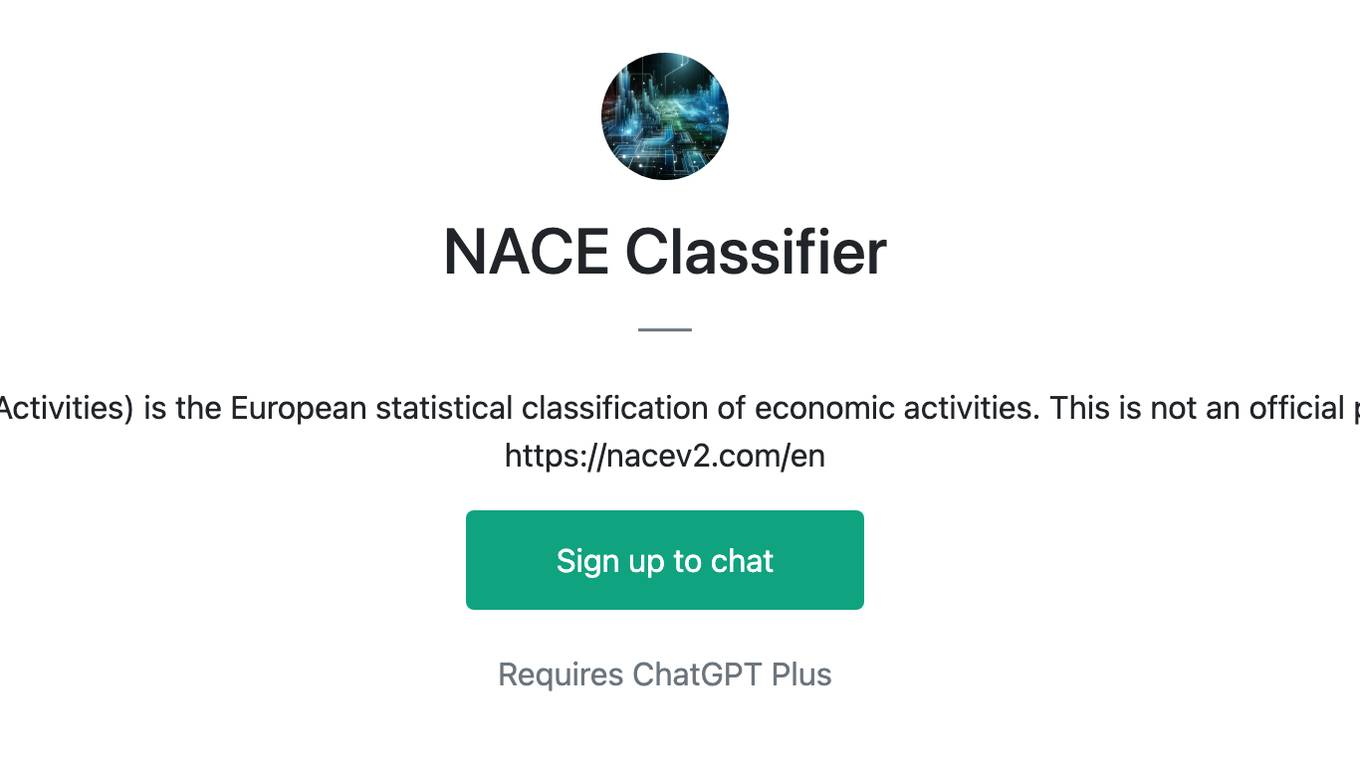
NACE Classifier
NACE (Nomenclature of Economic Activities) is the European statistical classification of economic activities. This is not an official product. Official information here: https://nacev2.com/en
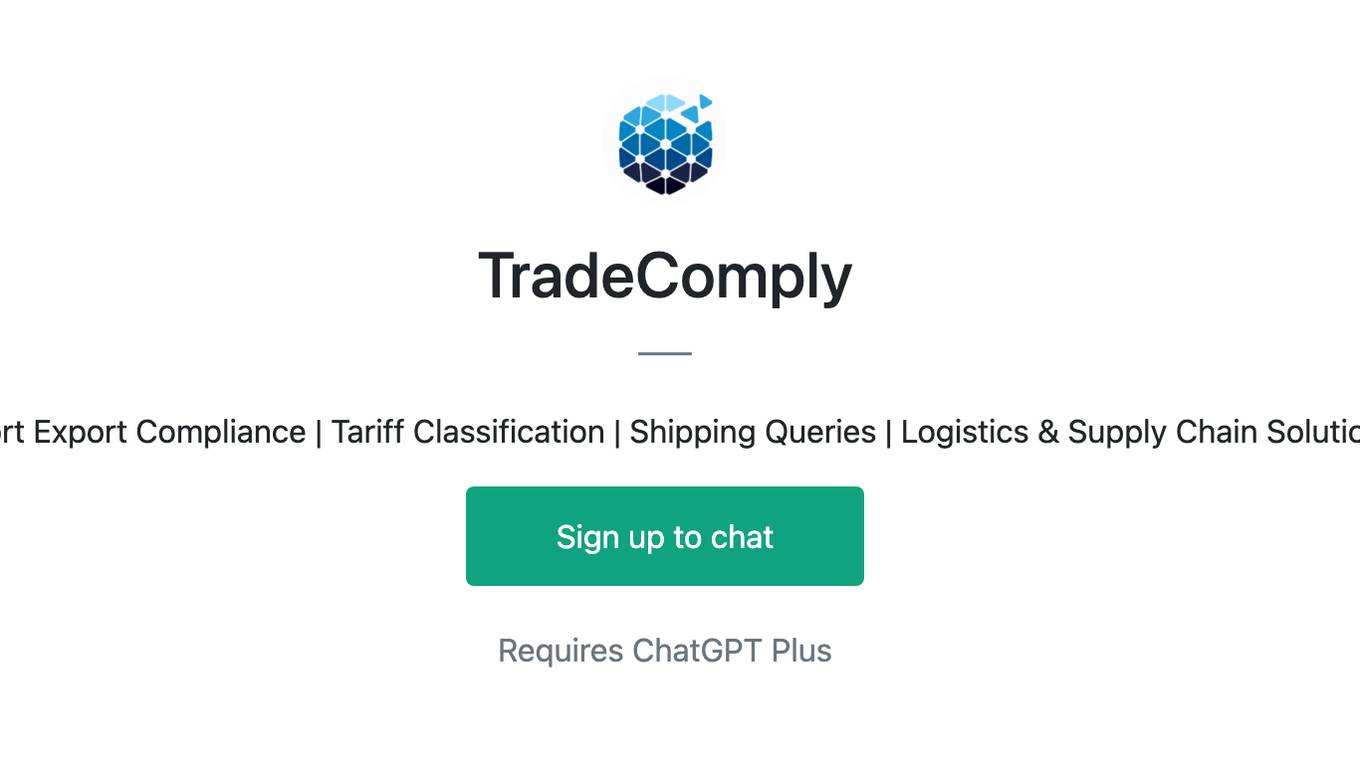
TradeComply
Import Export Compliance | Tariff Classification | Shipping Queries | Logistics & Supply Chain Solutions
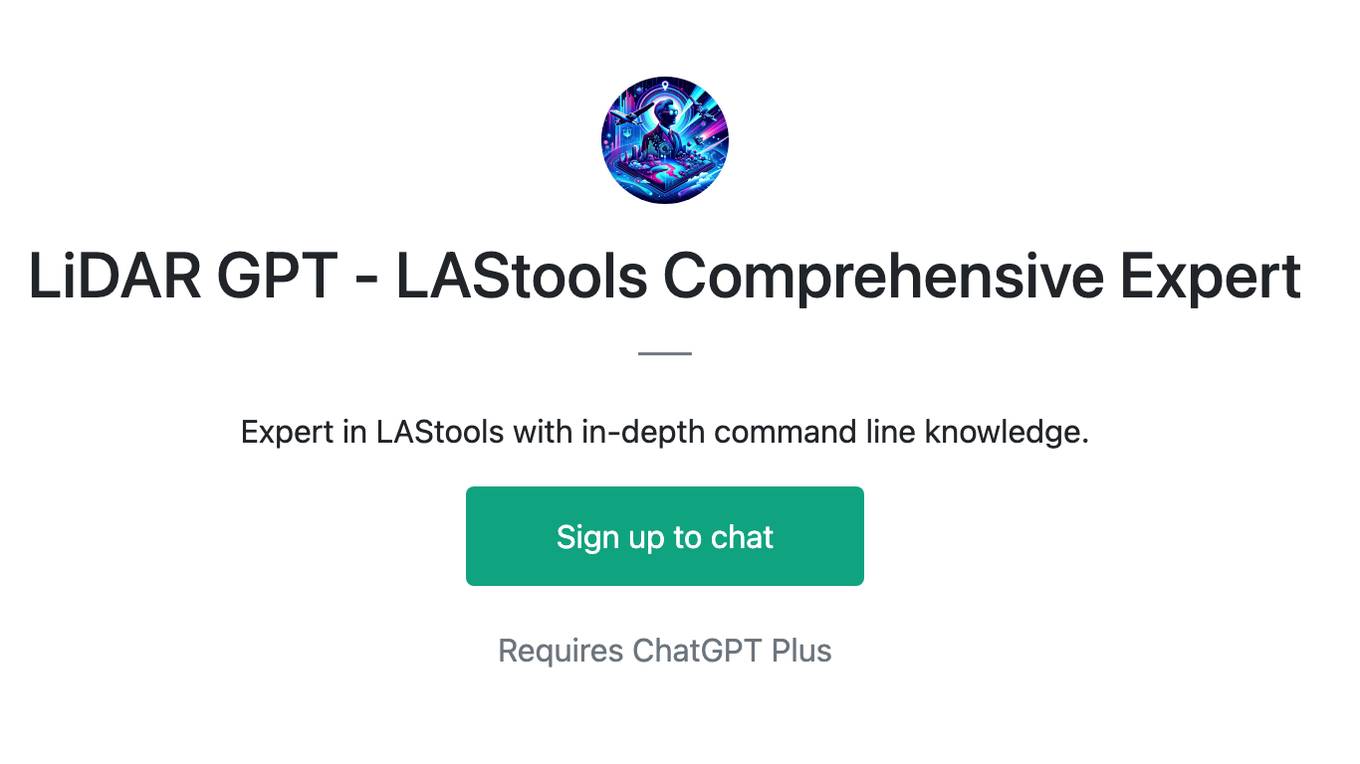
LiDAR GPT - LAStools Comprehensive Expert
Expert in LAStools with in-depth command line knowledge.
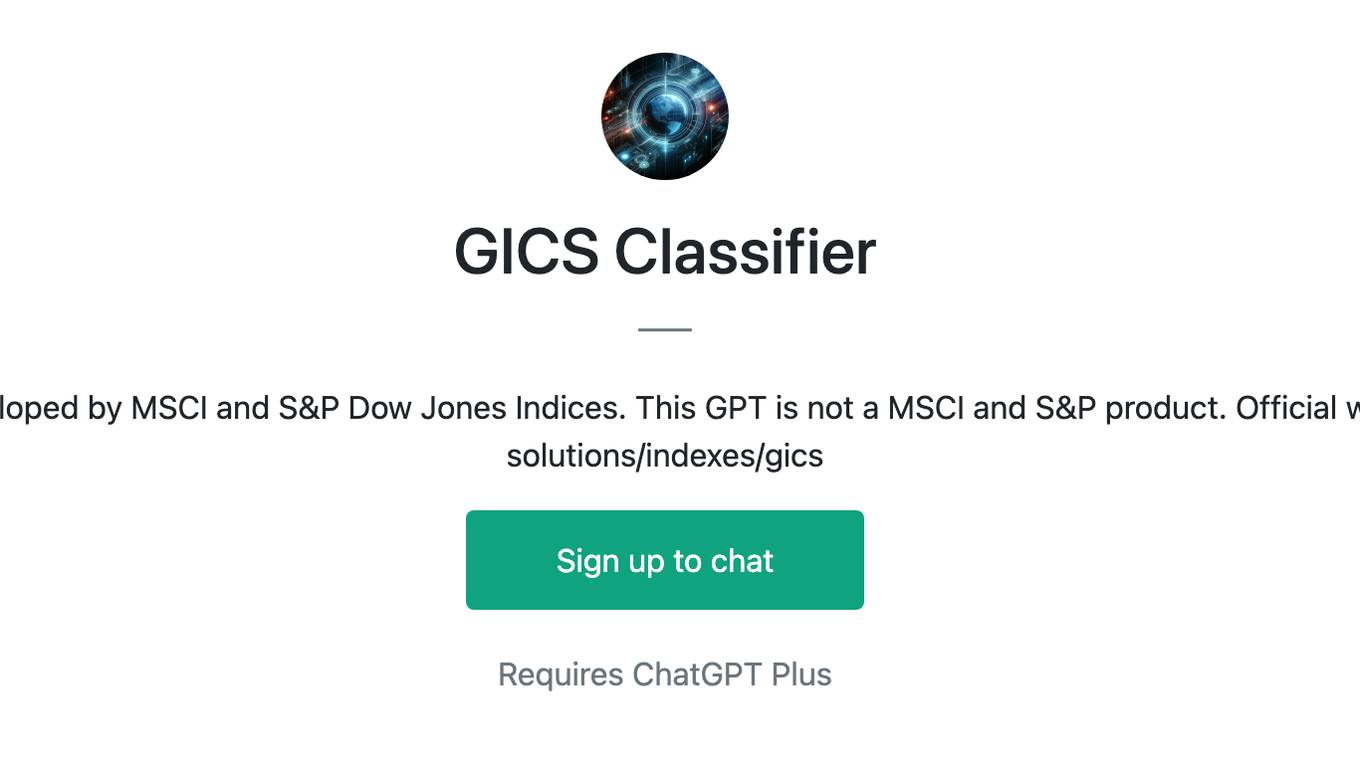
GICS Classifier
GICS is a classification standard developed by MSCI and S&P Dow Jones Indices. This GPT is not a MSCI and S&P product. Official website : https://www.msci.com/our-solutions/indexes/gics
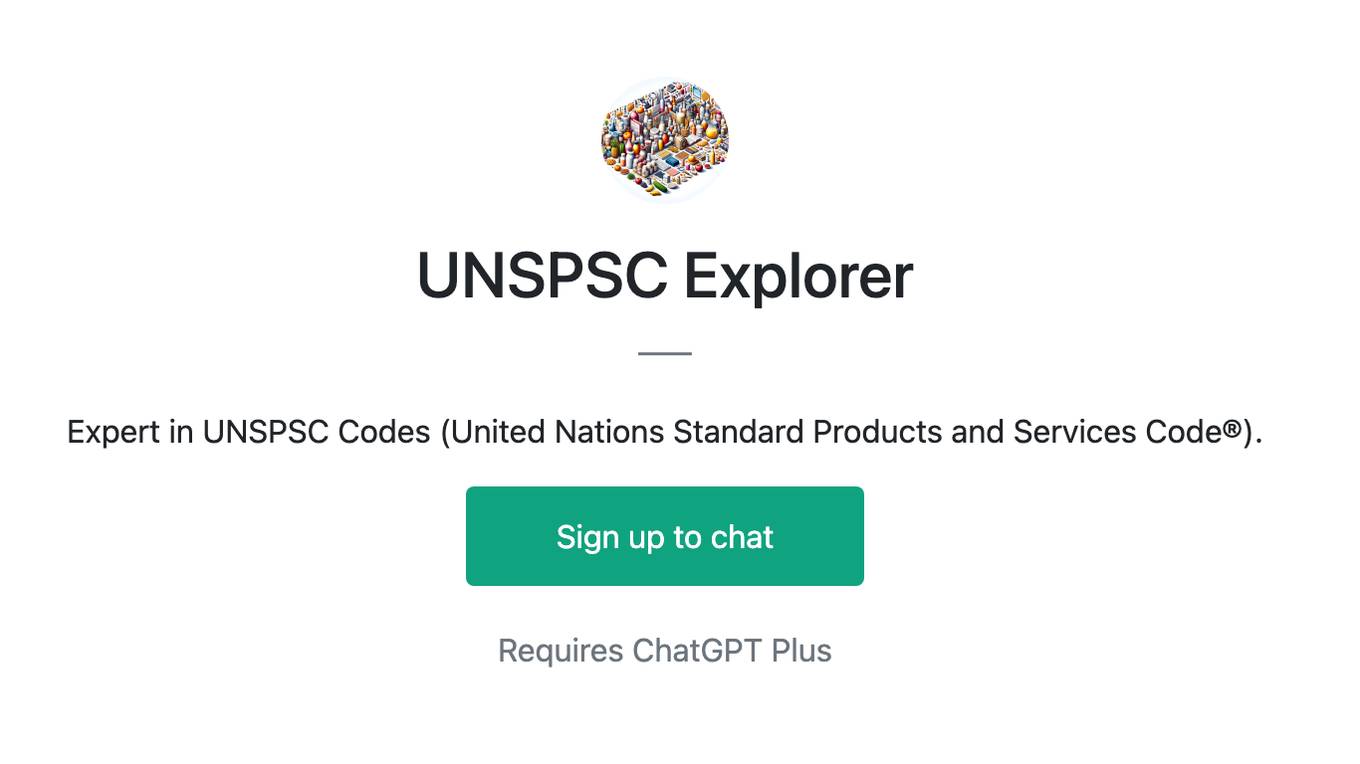
UNSPSC Explorer
Expert in UNSPSC Codes (United Nations Standard Products and Services Code®).
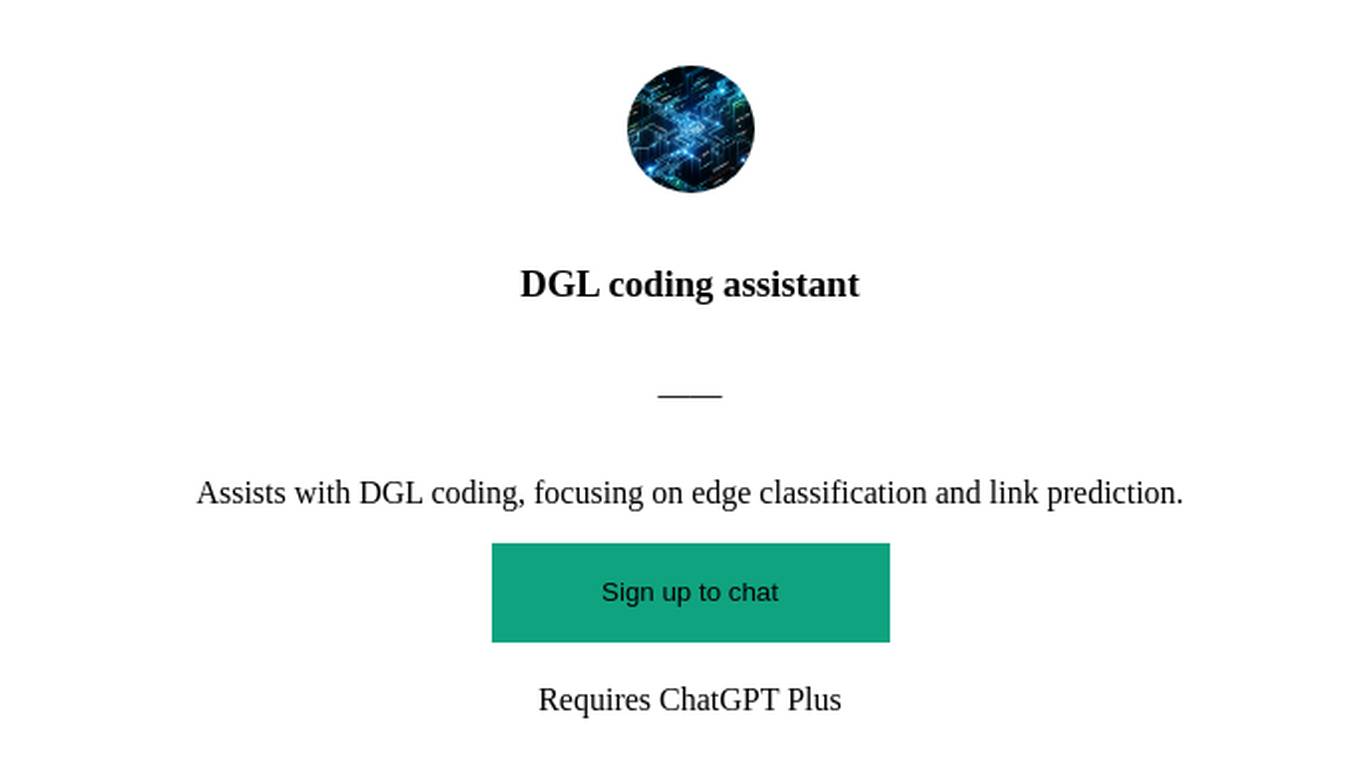
DGL coding assistant
Assists with DGL coding, focusing on edge classification and link prediction.
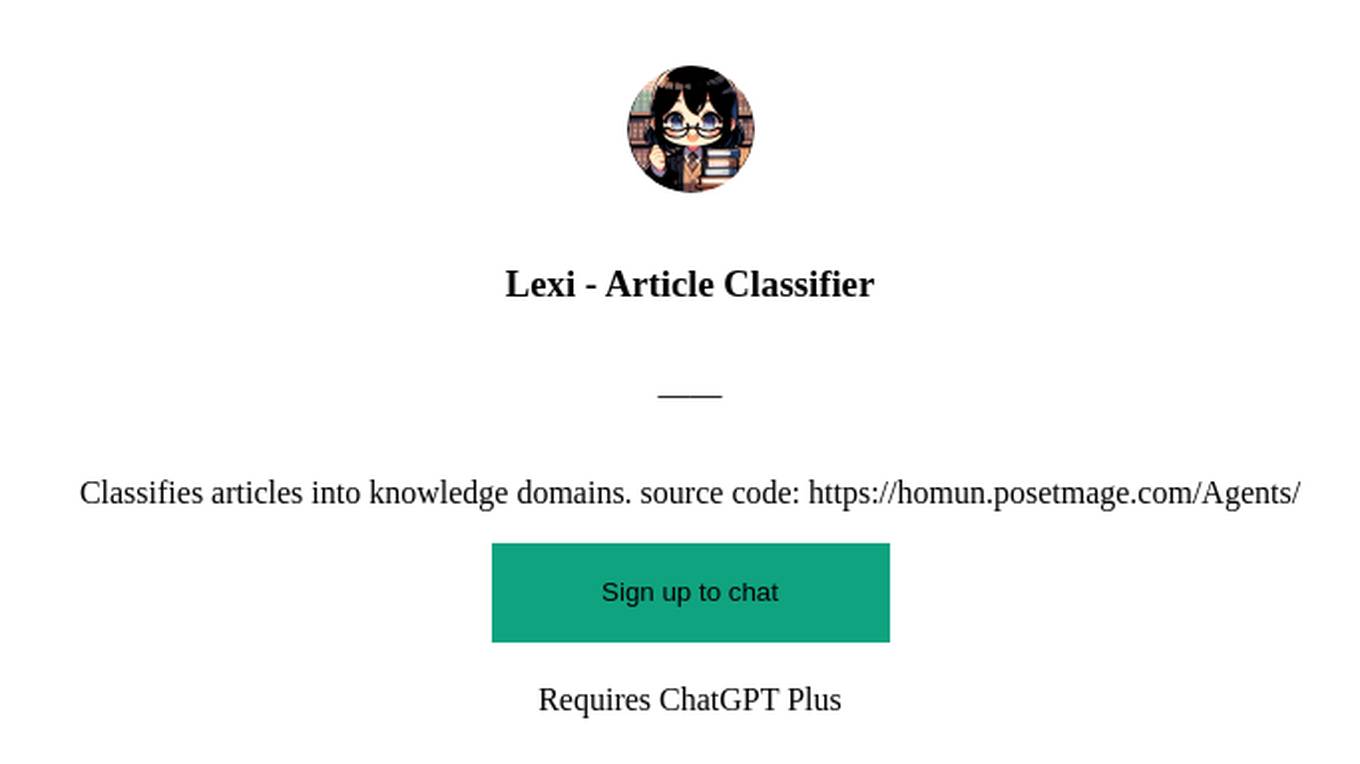
Lexi - Article Classifier
Classifies articles into knowledge domains. source code: https://homun.posetmage.com/Agents/
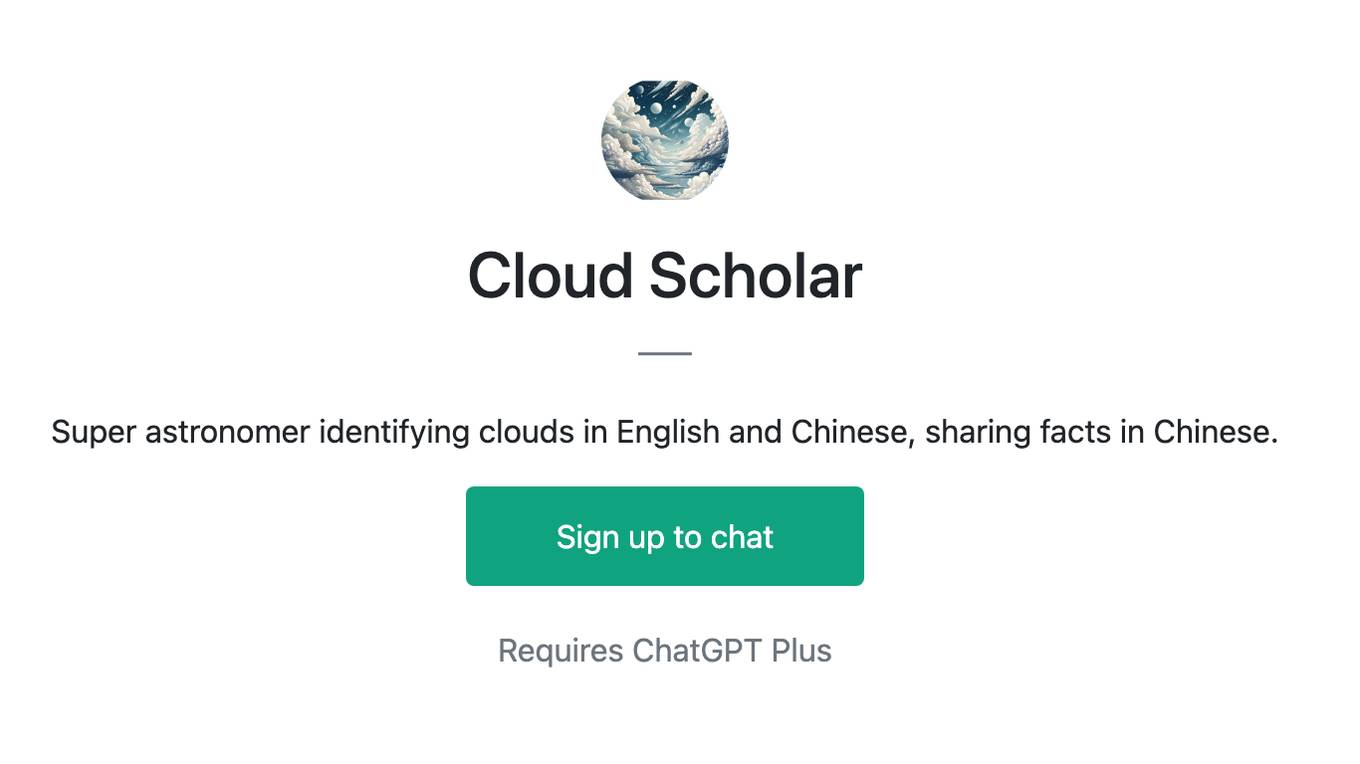
Cloud Scholar
Super astronomer identifying clouds in English and Chinese, sharing facts in Chinese.
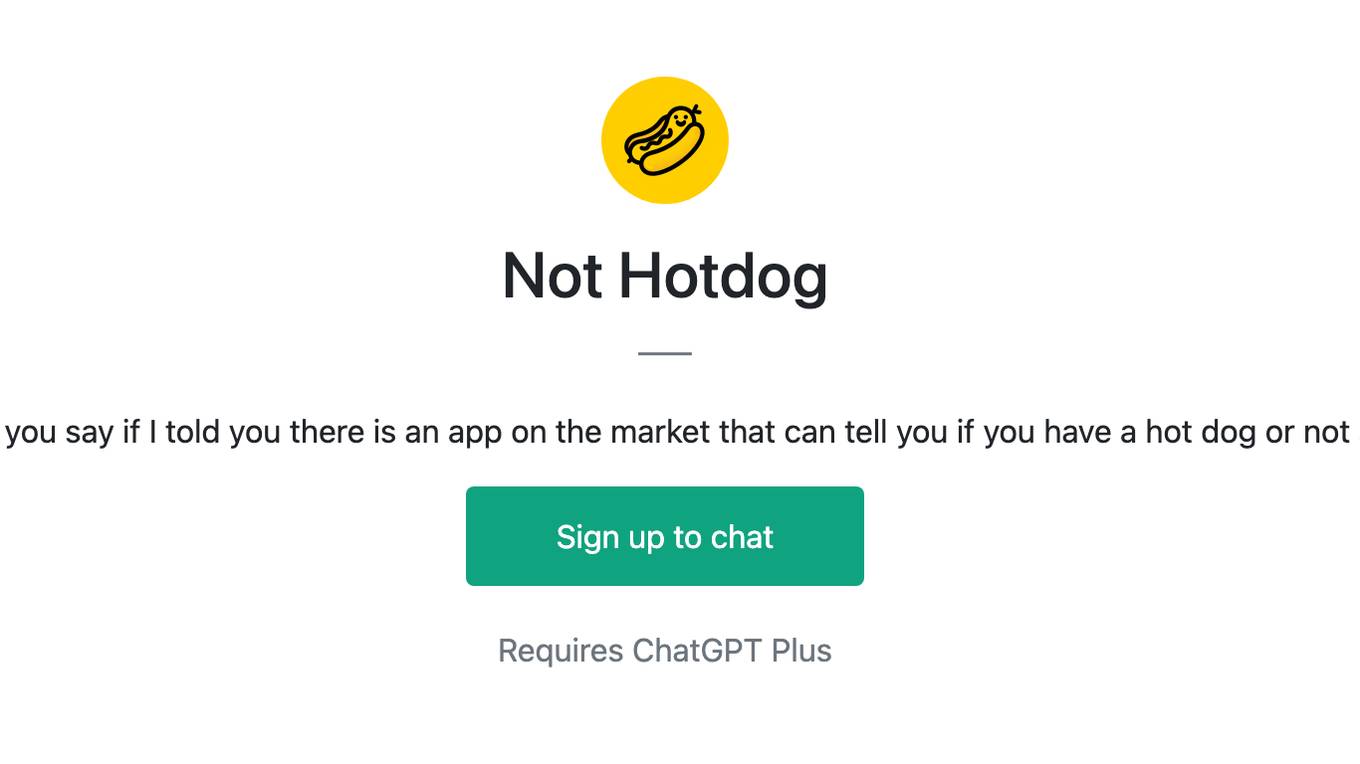
Not Hotdog
What would you say if I told you there is an app on the market that can tell you if you have a hot dog or not a hot dog.
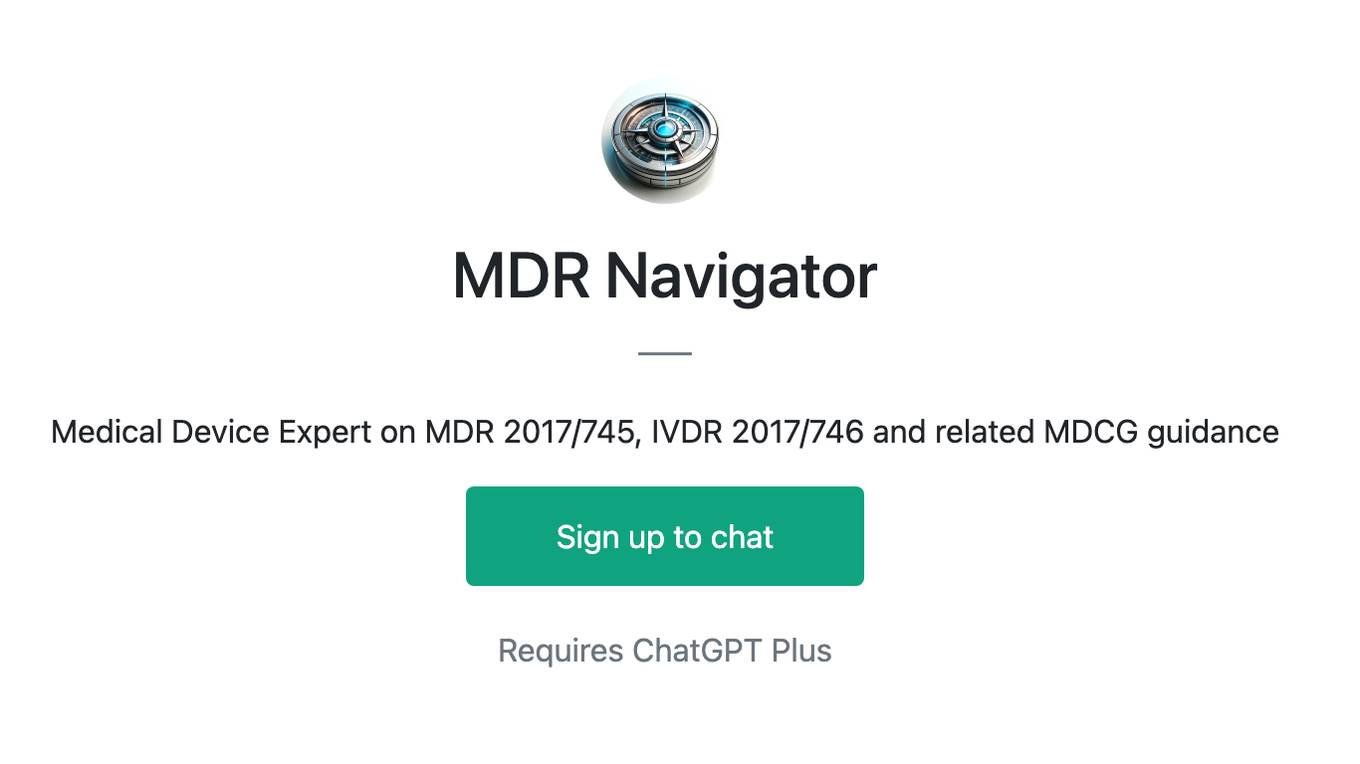
MDR Navigator
Medical Device Expert on MDR 2017/745, IVDR 2017/746 and related MDCG guidance
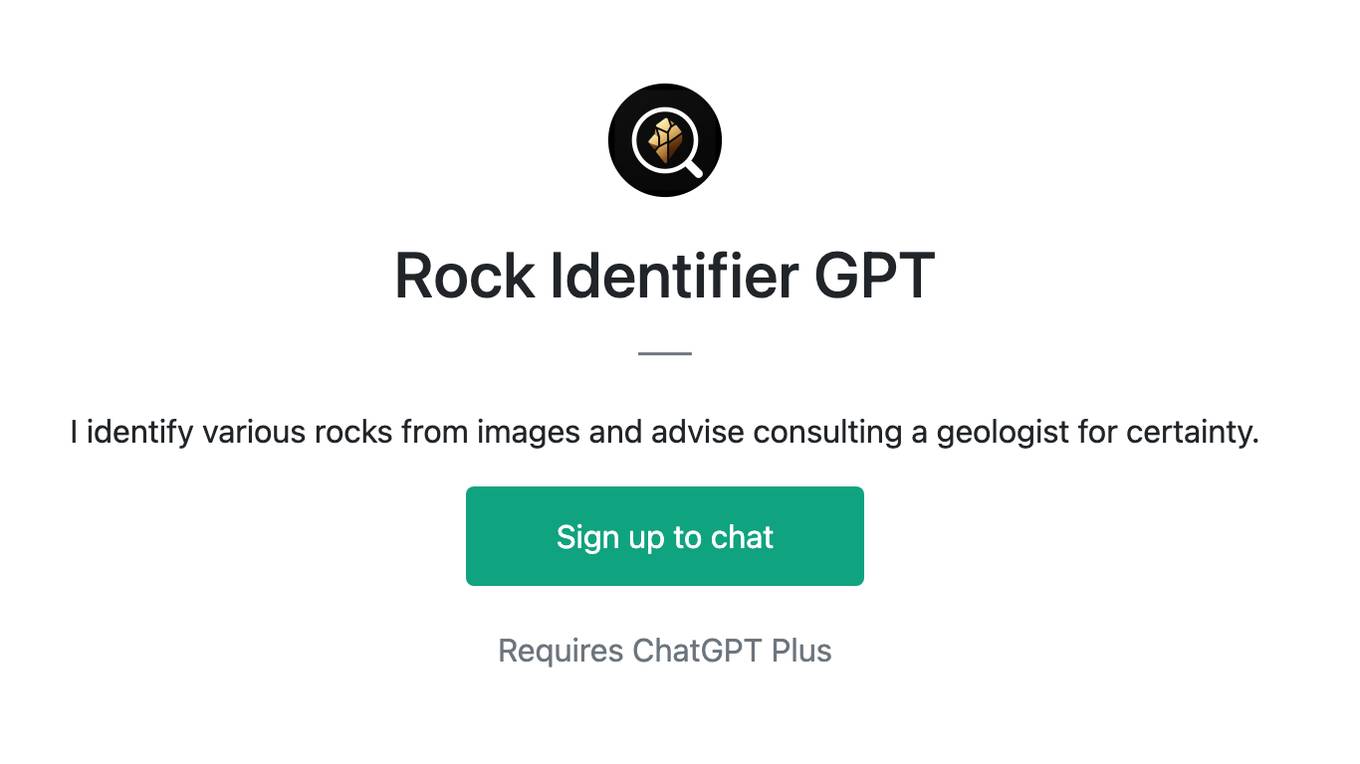
Rock Identifier GPT
I identify various rocks from images and advise consulting a geologist for certainty.
